High in the rugged, snowy peaks of the Indian Himalayas, where the air is thin but the spirit is strong, a quiet revolution is unfolding. At Dorjee Zong Nunnery, 19 nuns and also lay girls are defying the odds, embracing education, and transforming their futures. But they can’t do it without your support.

Some of the nuns at Dorjee Zong Nunnery in Zanskar are in their 90s.
Capturing the Faces of Hope
In the spring of 2024, humanitarian photographer Bryan Watt and his partner, Dr Leila Srour, visited the nunnery where they were deeply moved by the devotion and enthusiasm they saw there.

There are currently 19 Tibetan Buddhist nuns at Dorjee Zong — 7 older nuns and 12 younger nuns.
Since its founding in the 14th century by Master Sherab Zangpo, Dorjee Zong Nunnery has stood as a beacon of wisdom and compassion. It is one of Zanskar’s oldest centers of monastic learning, where nuns devote their lives to meditation, prayer, and education.
Education at Dorjee Zong
In 2009, the nunnery was accepted into the Tibetan Nuns Project’s sponsorship program, which supports education for girls and women. Thank you to all our sponsors and learn about sponsoring a nun for just $1 a day here.

The school is known to be the best school in the area and now educates both nuns and lay girls. When Bryan and Leila visited, 22 girls were studying there. Bryan said, “All the students are eager to learn and have ambitions to pursue their spiritual education and become teachers or doctors.”
The Tibetan Nuns Project also provides textbooks, pays for a teacher and a cook, and in 2019 began a major expansion and improvement project at the nunnery.

The younger nuns assemble outside the new building, part of the expansion and improvement project started in 2019. The nunnery also provides education to lay girls from the surrounding area.
Girls and women from the Indian Himalayas have traditionally been given far less education than boys and men. Girls’ education is often the first thing to be sacrificed by families in poverty. Our programs provide girls a chance for education that they would not have otherwise.

Without support, many of these girls would not have access to education. Not all students will take nuns vows as they grow up, but the education they receive prepares them to carve out their own paths with a curriculum that teaches both Buddhist wisdom and practical knowledge.
Bryan Watt recalls, “We were told it’s the best school in the area, better than public or private schools. The children’s passion for learning was so evident. They’re eager, ambitious, and full of dreams. We were impressed with how much they knew and were learning.”

Bryan Watt, the photographer, said, “Not only are these girls getting a good educational background, but they’re also learning life skills and becoming confident… There’s attention paid to all aspects of their lives — how to treat each other, how to treat themselves, and so that’s a great background for them.”
Byran said, “The kids were very enthusiastic and very obedient. Maybe they were taught to be that way. They were very grateful for the food that they ate, for every activity that they were involved in. They go to school 6 days a week.”

The girls learn four languages: the local Zanskari language which is written using the Tibetan script, Tibetan, Hindi, and English.
Every other weekend they get Saturday off so the girls from nearby can go home and see their families.
One young nun’s story stands out as a symbol of hope. “She’s so dedicated, devout, and sincere in her studies,” Bryan shared. “Her determination set a powerful example for the younger girls, and it was a joy to witness her leadership.”

One nun’s journey. She and her mother walked at night because it was too dangerous during the day. During the day, the heat melts the ice on the cliffs above the canyons and rocks fall. They rested in the houses of relatives and friends along the way and walked only in the cold darkness.
Young nuns and lay girls alike study four languages — Zanskari, Tibetan, Hindi, and English — and learn essential life skills alongside their spiritual education. Dorjee Zong offers nuns and young girls from the local community a special opportunity for education in a region where girls’ schooling is often sacrificed.

With your help, these girls can carve out their own futures as teachers and community leaders.
The Challenges of Daily Life
Life at this remote, 700-year-old Tibetan Buddhist nunnery is simple but challenging. The nunnery is at 12,861 feet or 3,920 metres altitude. Like the rest of Zanskar, the nunnery is virtually cut off from the rest of the world during the harsh winter months.

When Bryan and Leila visited in early spring 2024, the main road in Zanskar was only open in one direction and only 15 cars got through that day. Snow drifts on either side of the road were 10 feet high in places so it was like driving through a tunnel..
Inside the nunnery, basic needs like water and electricity are a daily struggle. Power is limited to one hour in the morning and three to four hours in the evening. There are solar panels but they were not working during Bryan’s visit.

Older nuns collecting dung for fuel at the nunnery. Some rooms, like where the young nuns eat, have a little stove for heating and the new building has passive solar walls.
The new building where the young nuns and lay girls live and study is much more comfortable than the ancient nunnery up the hill where many of the older nuns live. The multi-purpose building has been designed to capture the sun’s heat during the cold winter months.

In the new building, the girls have a warmer, more comfortable learning environment. During the coldest months, they study together in the solarium, basking in the sun’s warmth.
Water pipes sometimes freeze in the winter and must be unblocked.

Bryan said, “In the morning, it was still cold for the children to wash their faces and brush their teeth.”
The nuns are hardy. They wash their faces and hands from a bucket of water outside, even on frigid mornings. The children take showers on Sundays outside and they have a solar water heater. Once a week, the children wash their own clothes by hand in a bucket of cold water but they don’t complain.

Life at Dorjee Zong Nunnery. A young Tibetan Buddhist nun scrubs her bowl clean outside using sand and cold water.
Three Vegetarian Meals a Day
The girls and women at Dorjee Zong have a nutritious diet and three meals a day. While the meals can be repetitive, especially in winter when there is limited access to fresh fruit and a wide variety of vegetables.

Thank you to those who sponsor nuns and provide food, shelter, clothing, education, and health care. We need more sponsors for nuns in India and the cost is just $1 a day.
Zanskar is sometimes called “Little Tibet”. The food there includes traditional Tibetan dishes like thukpa and thenthuk (noodle soups), tsampa (barley flour mixed with butter tea), and momos. The girls love eating chapatis.

Bryan said, “I never saw a bowl that still had food in it. In fact, they pretty much licked them. They did lick them fully because they also had to wash them.”
Thank you again to everyone who supports the Tibetan Nuns Project mission: To educate and empower nuns of the Tibetan Buddhist tradition as teachers and leaders; and to establish, strengthen, and support educational institutions to sustain Tibetan religion and culture.

Young Tibetan Buddhist nuns at Dorjee Zong in Zanskar adjust their robes.
These girls are not just students — they are changemakers in the making. With your help, they will grow into women who can inspire, teach, and uplift their communities. By supporting their education, you are investing in generational change.
For more of Bryan Watt’s beautiful photos from Dorjee Zong see his video slideshow here.

Gratitude to Bryan and Leila

























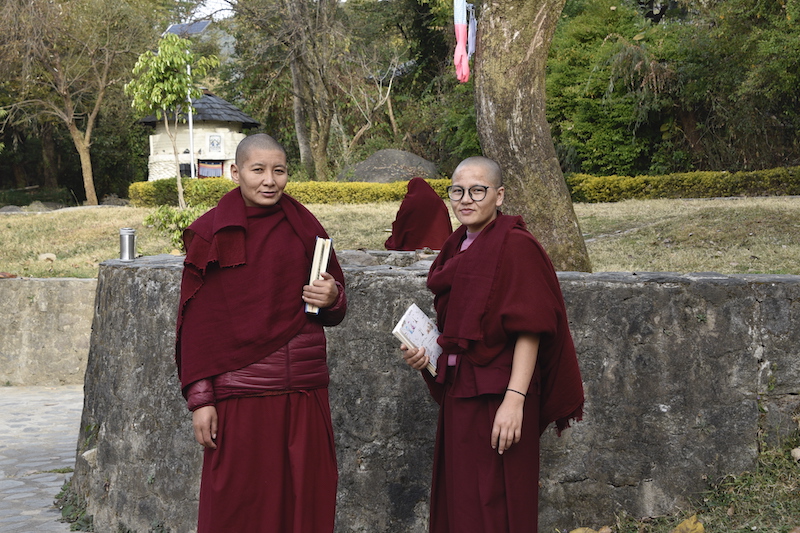
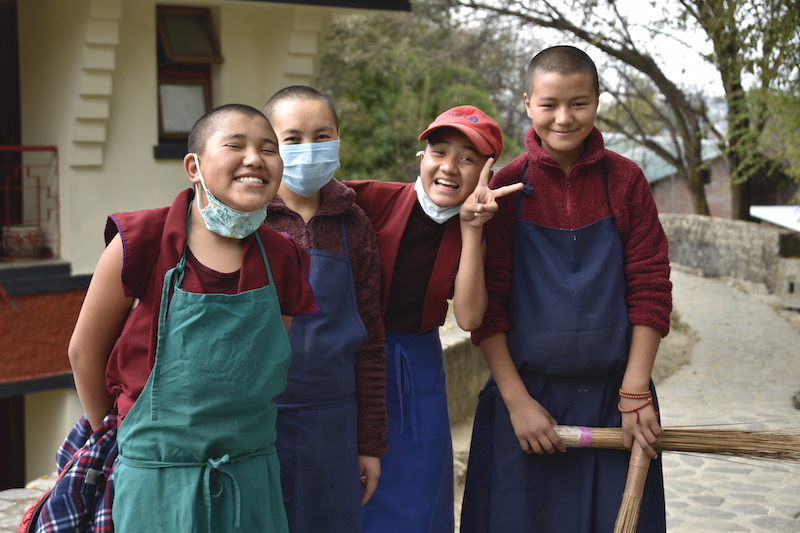

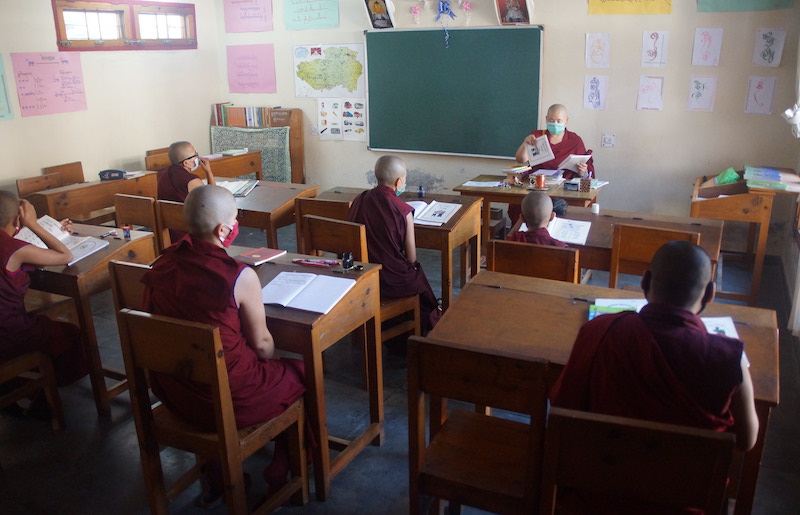
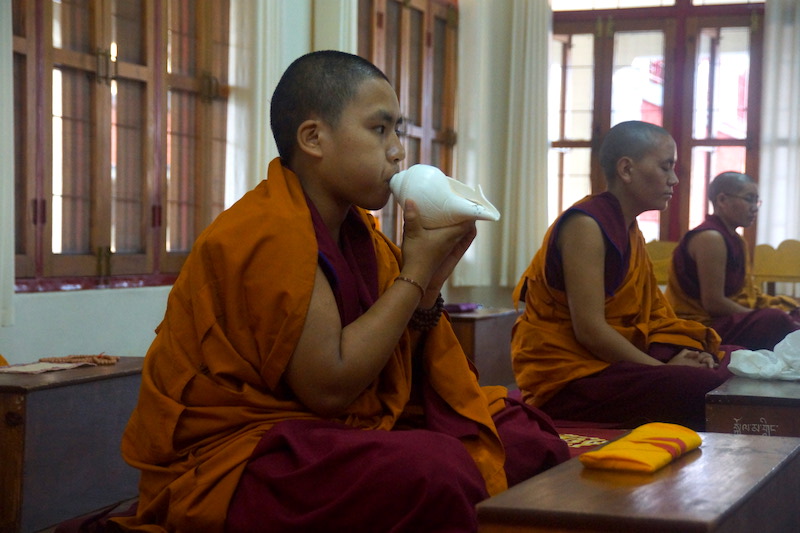

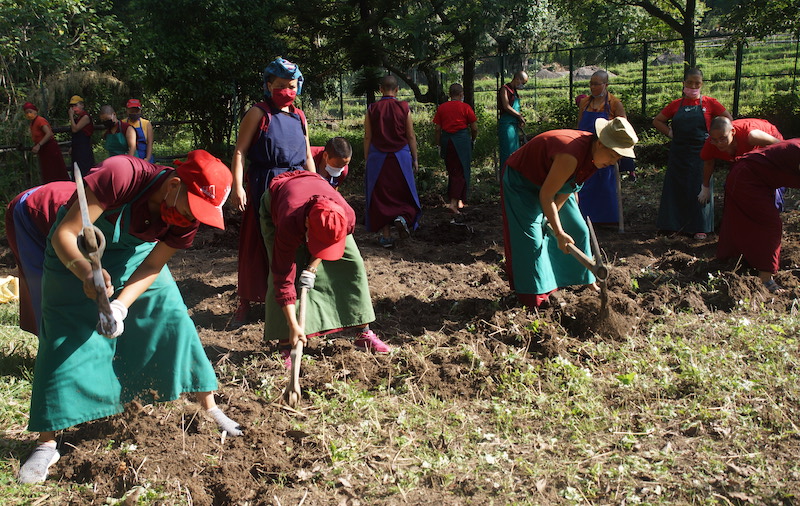
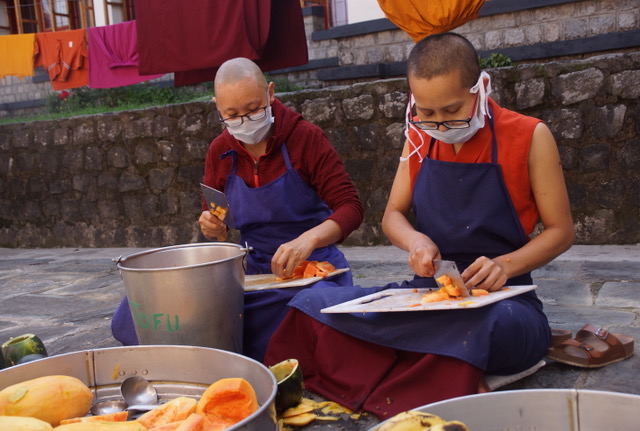
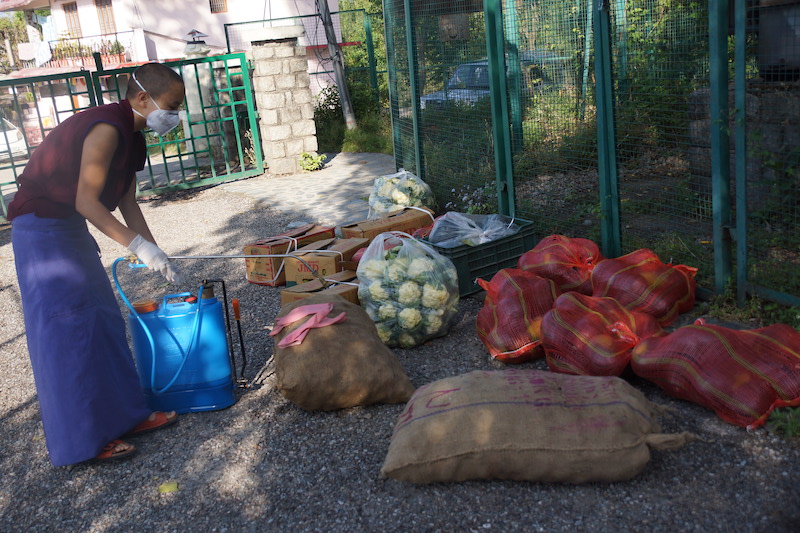
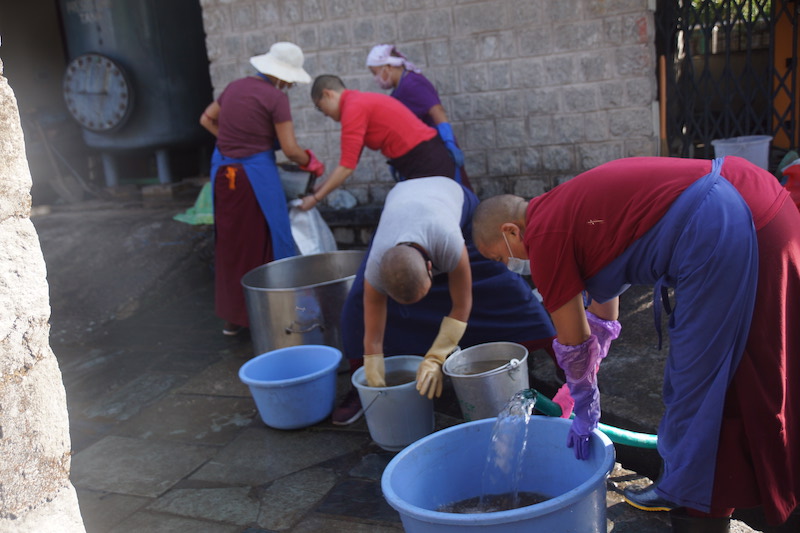
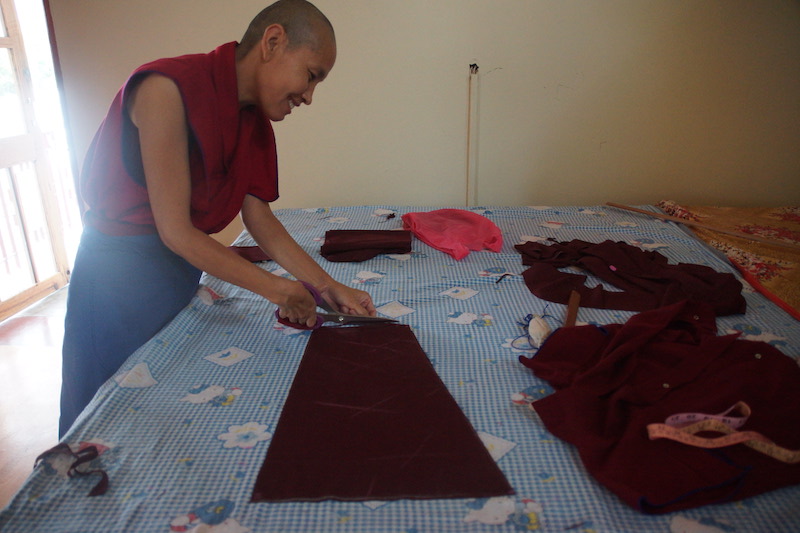

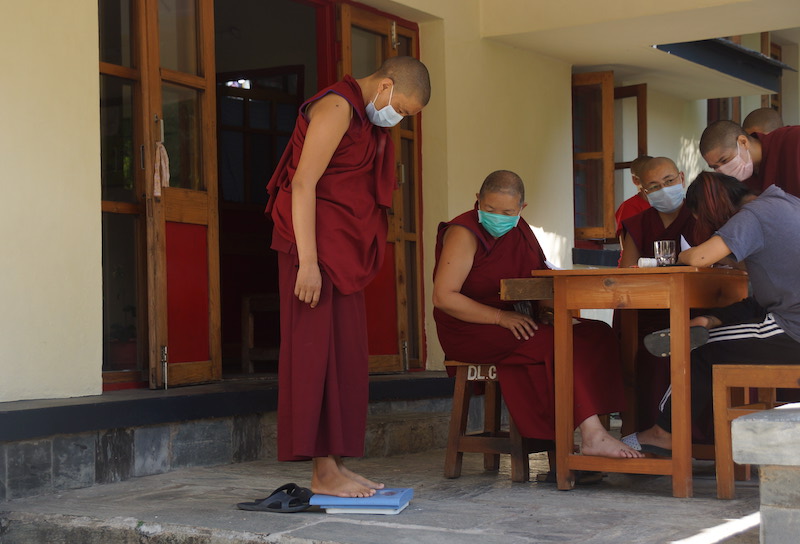
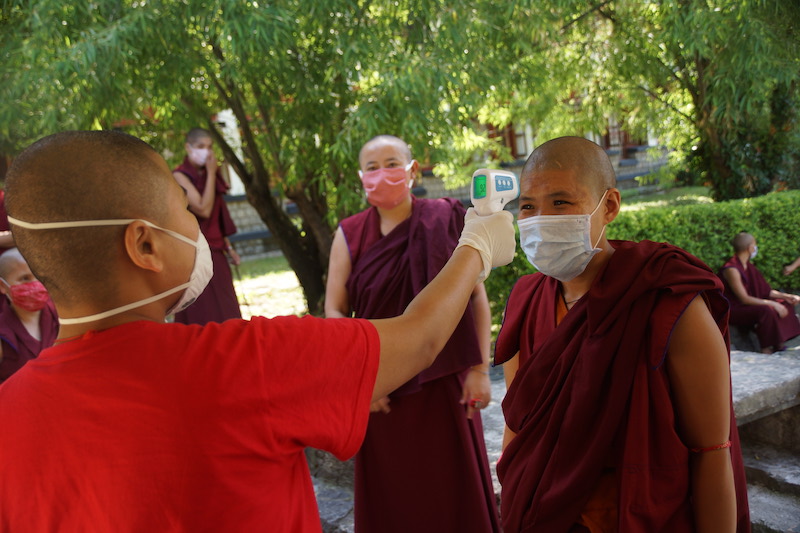
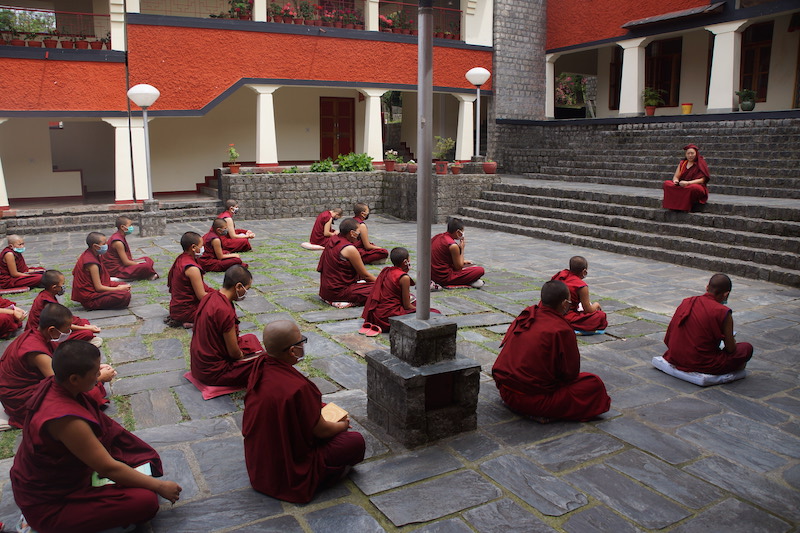
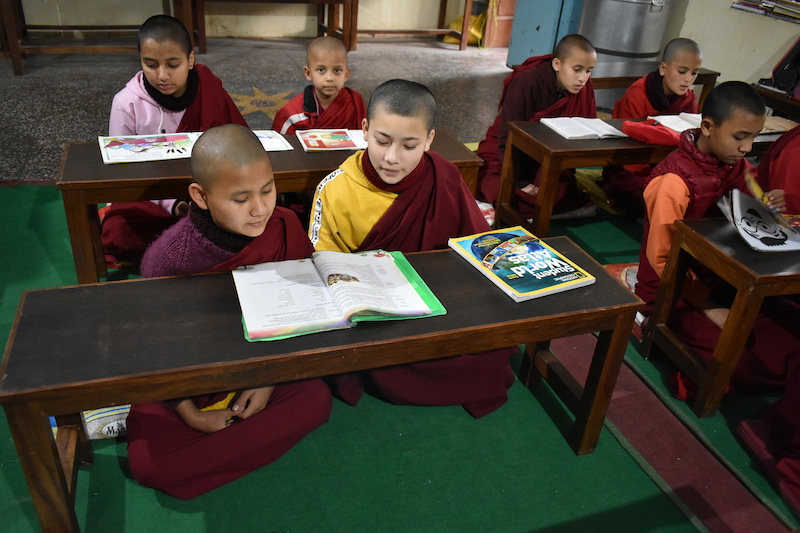
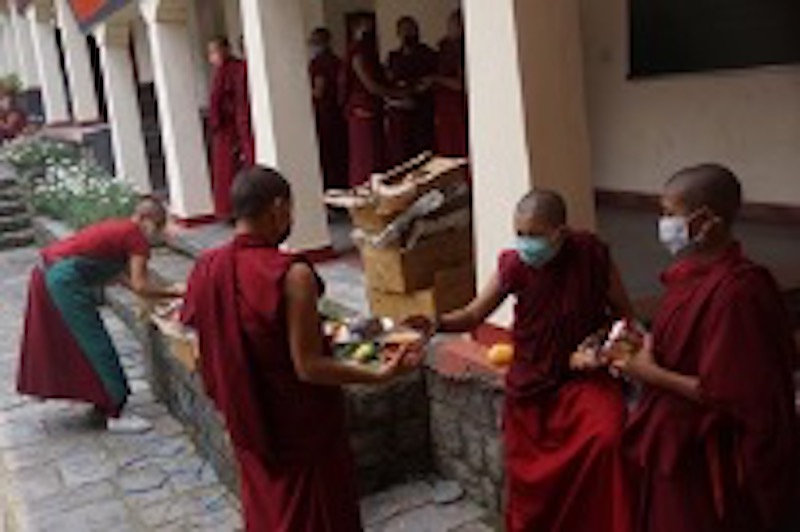
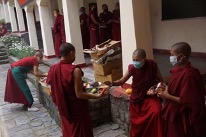
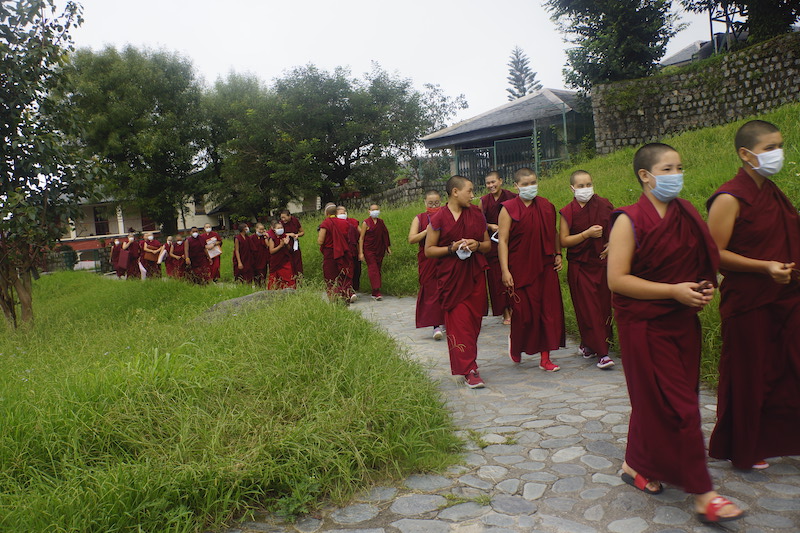
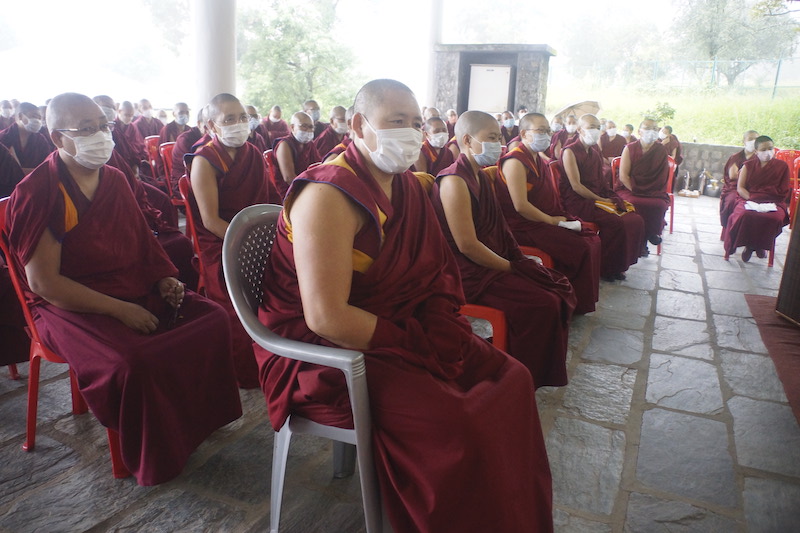
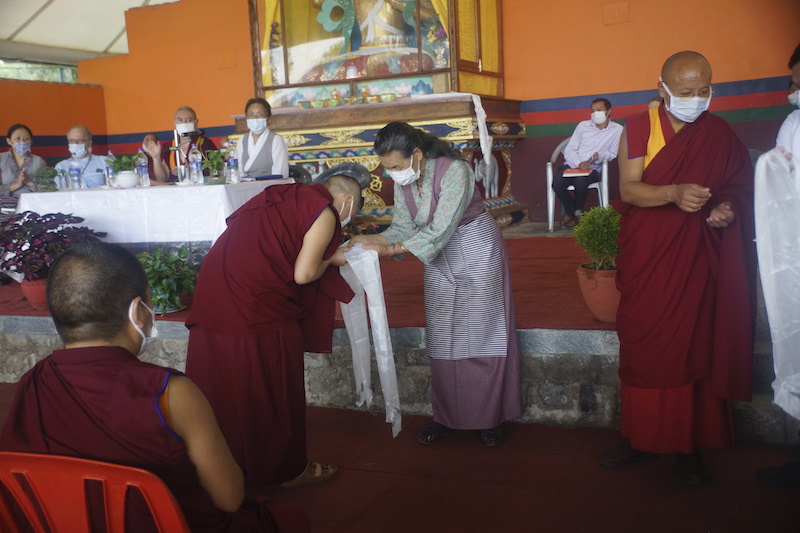
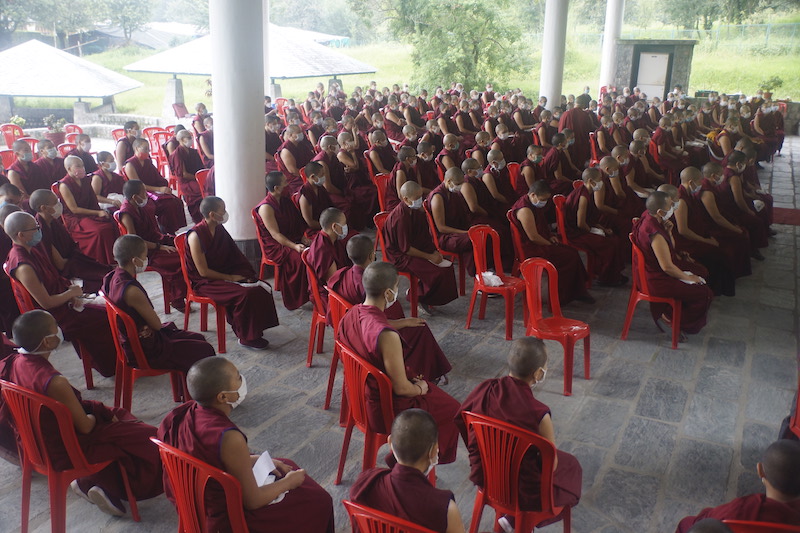
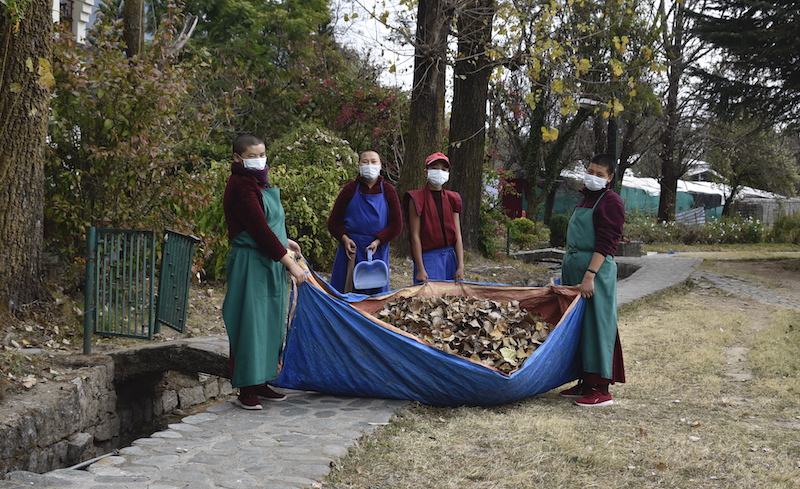
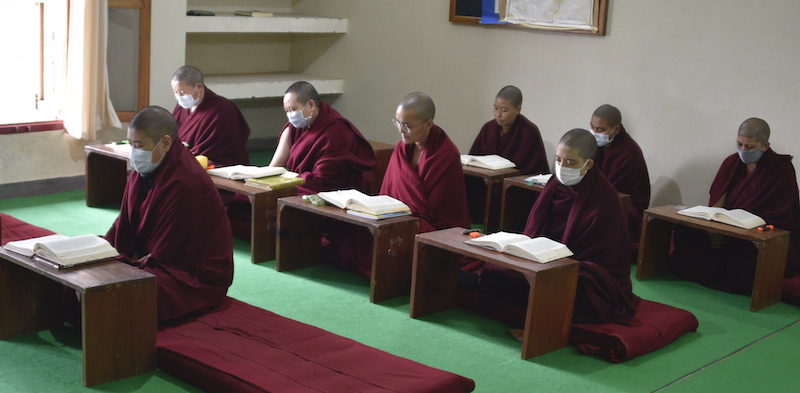
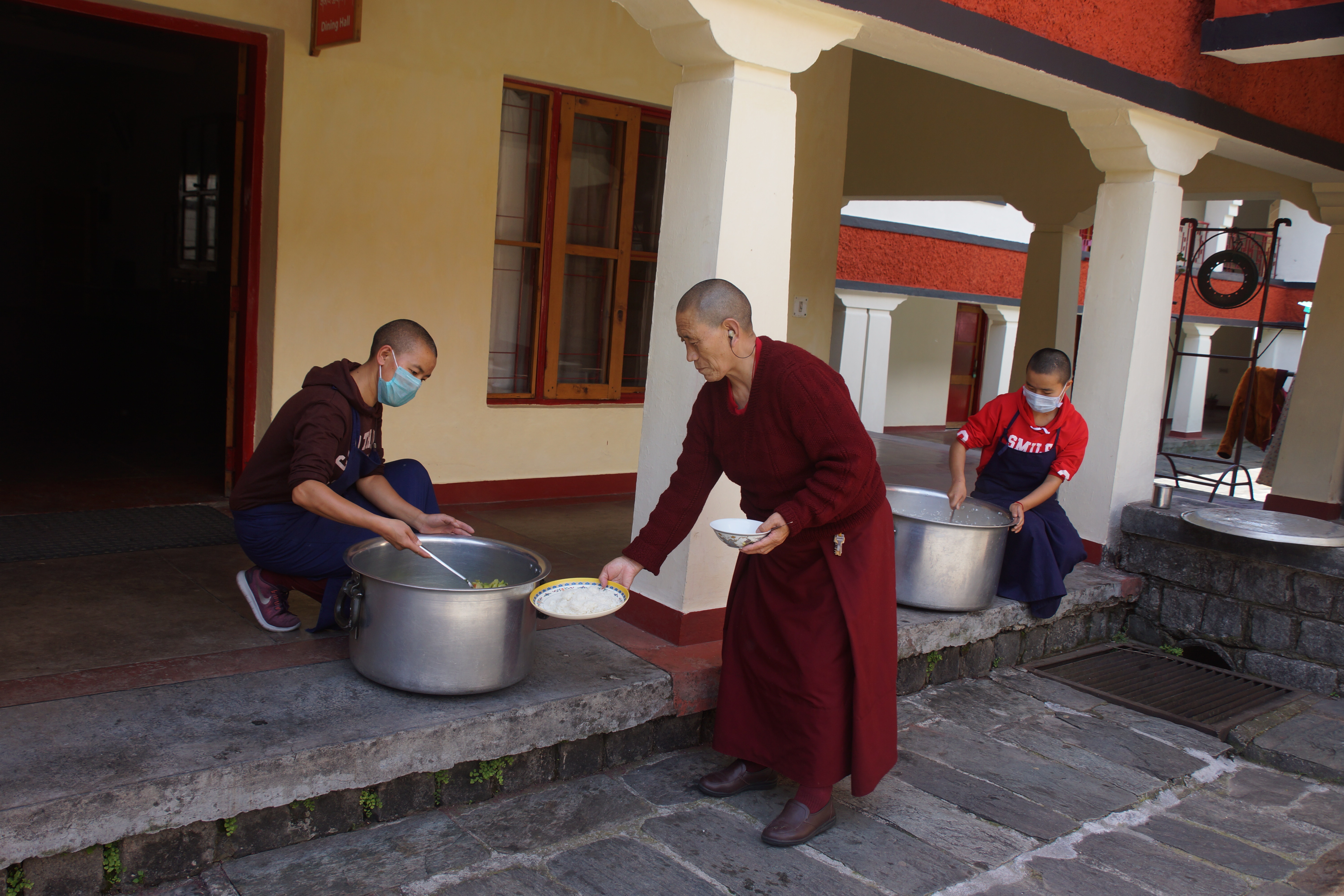
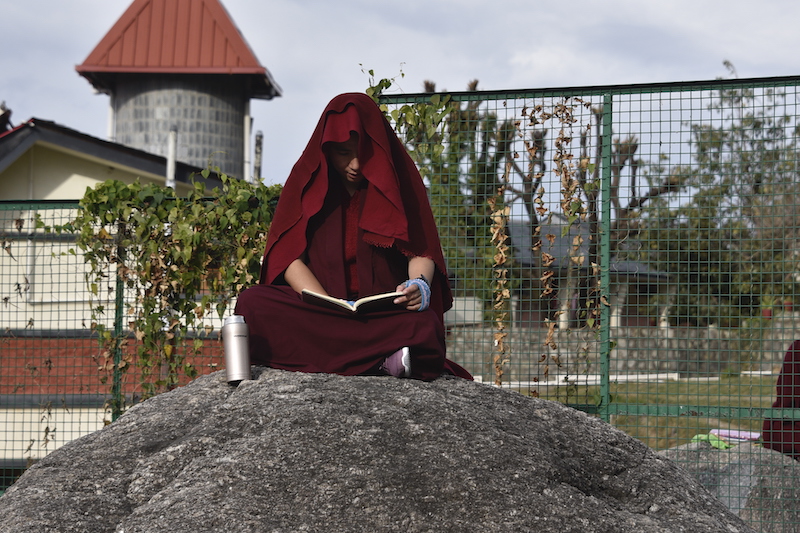
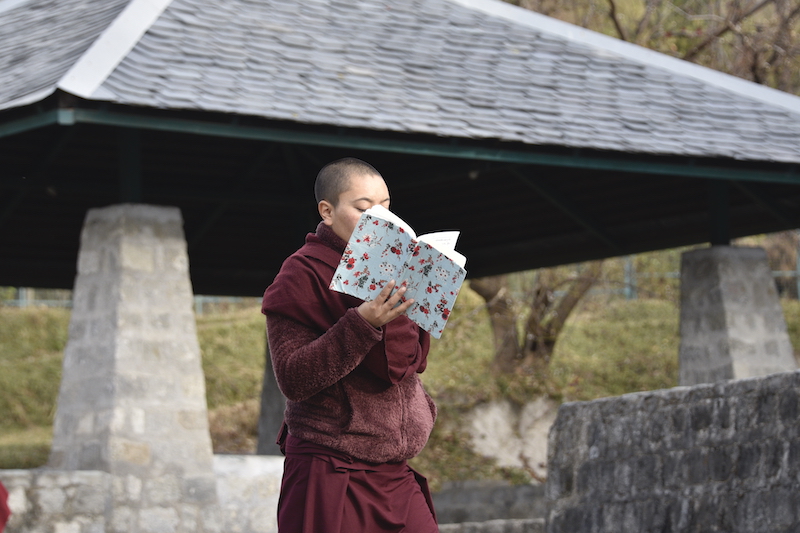
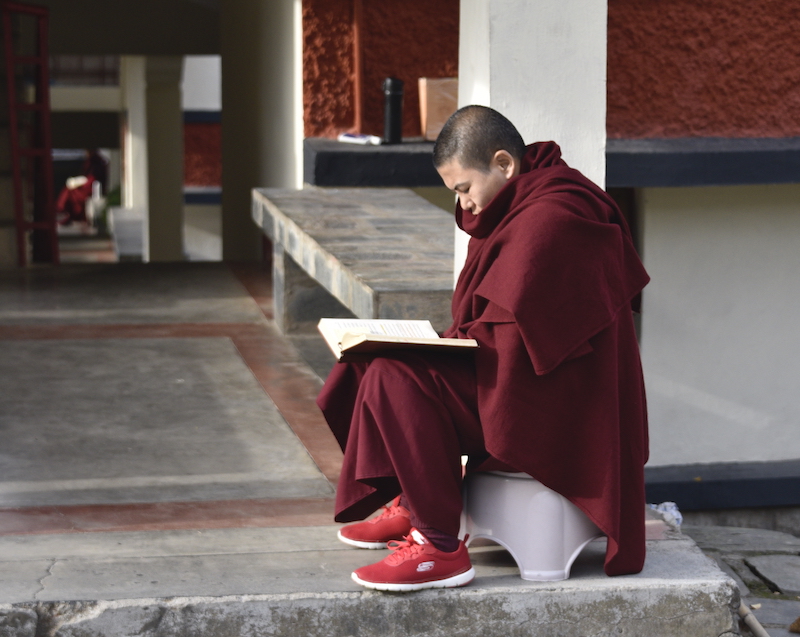
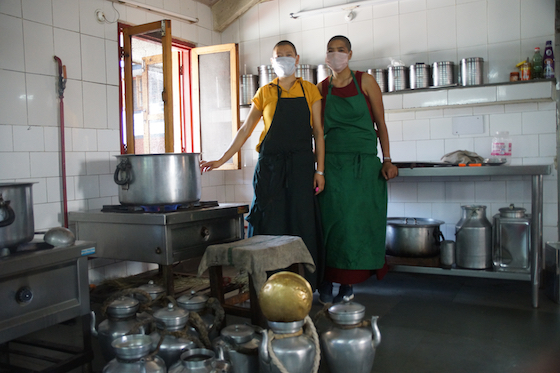

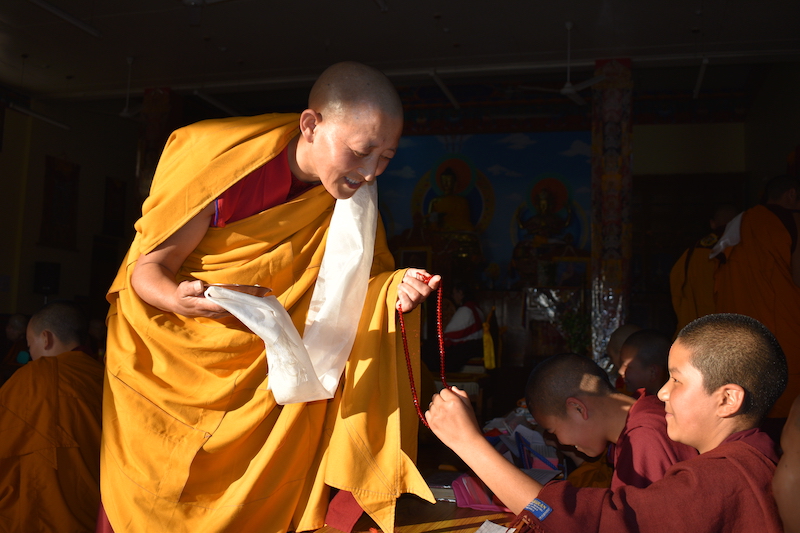



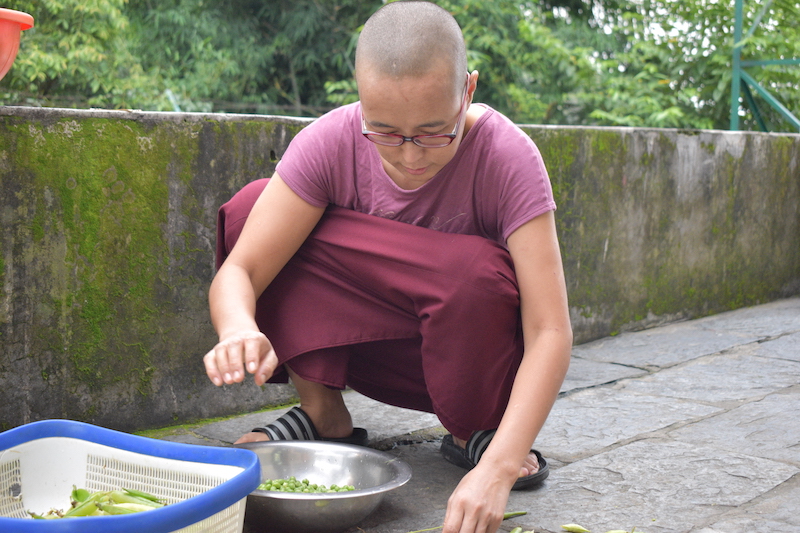






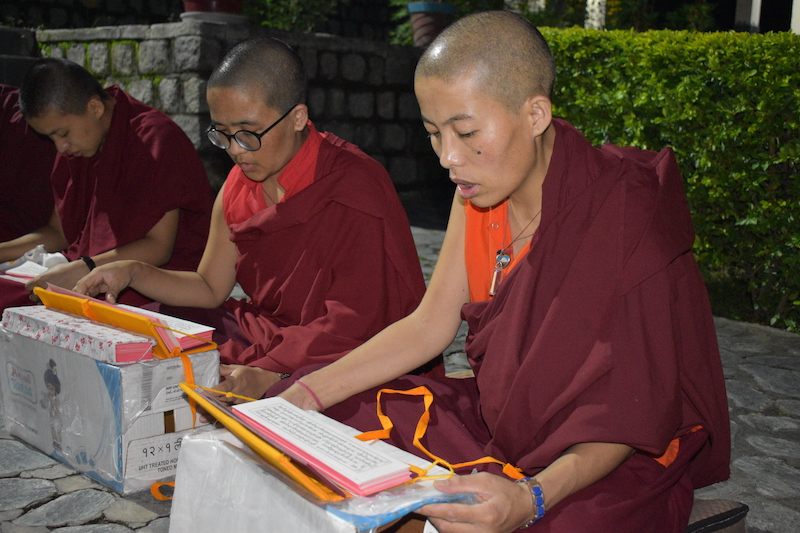
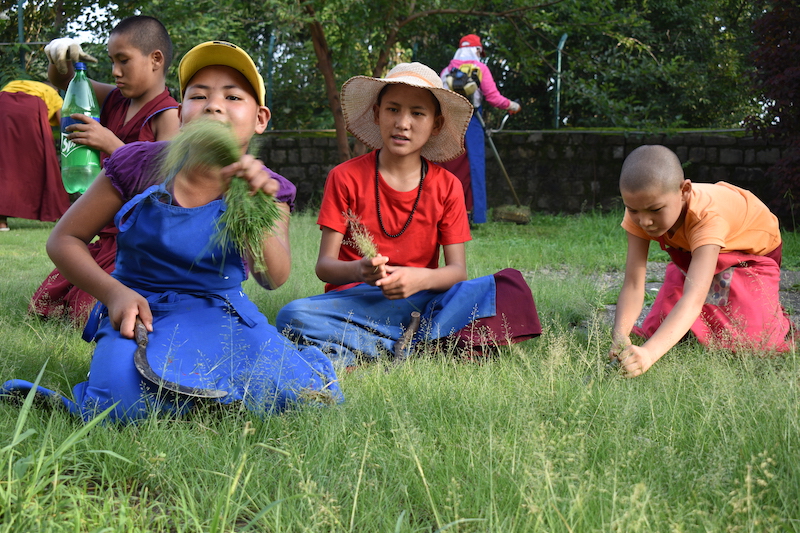
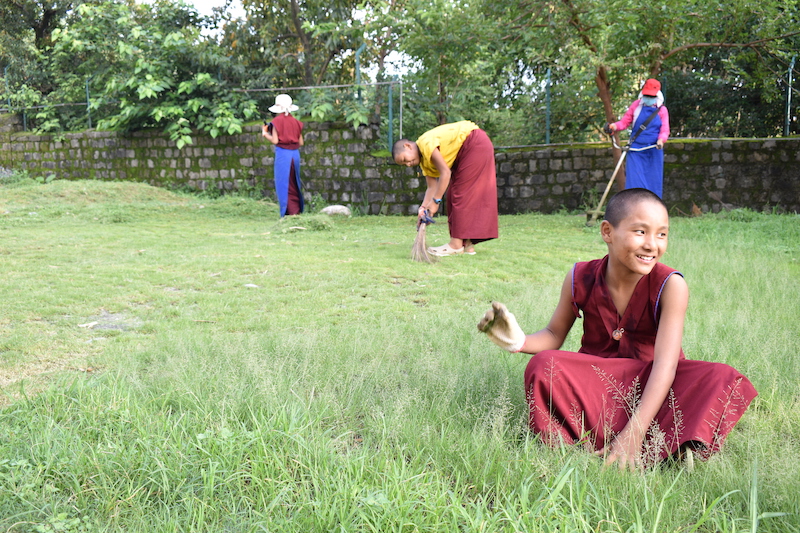

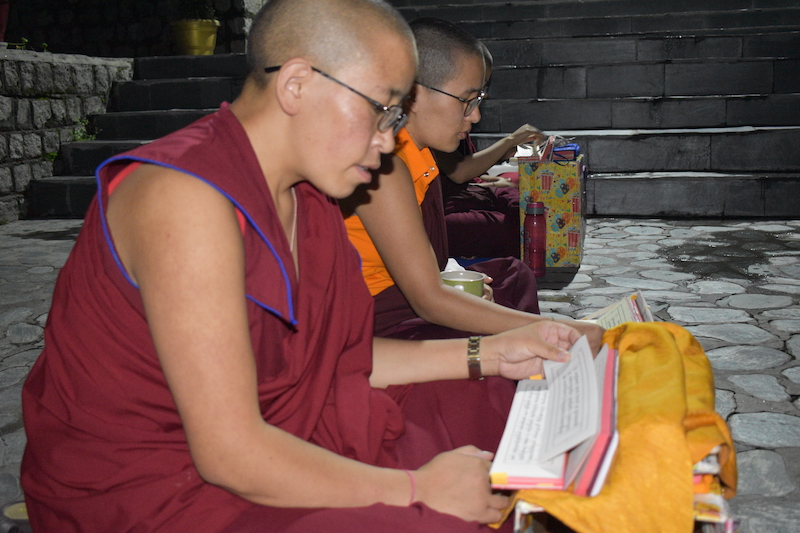
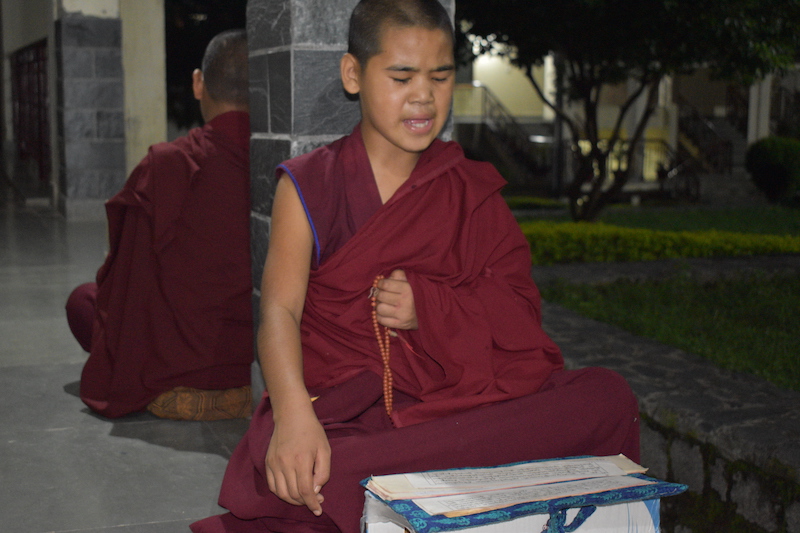
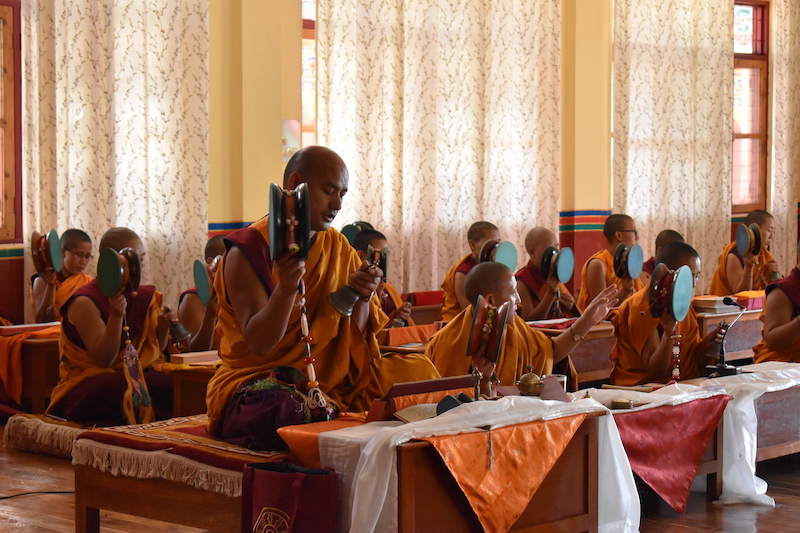
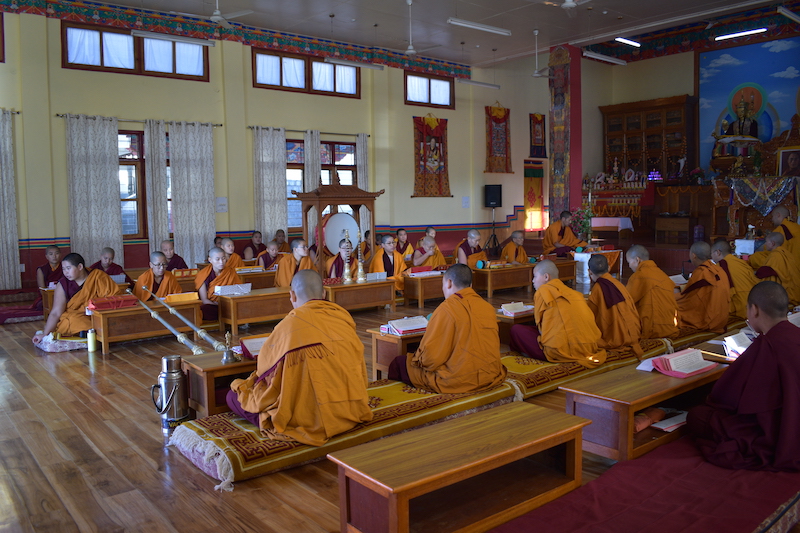
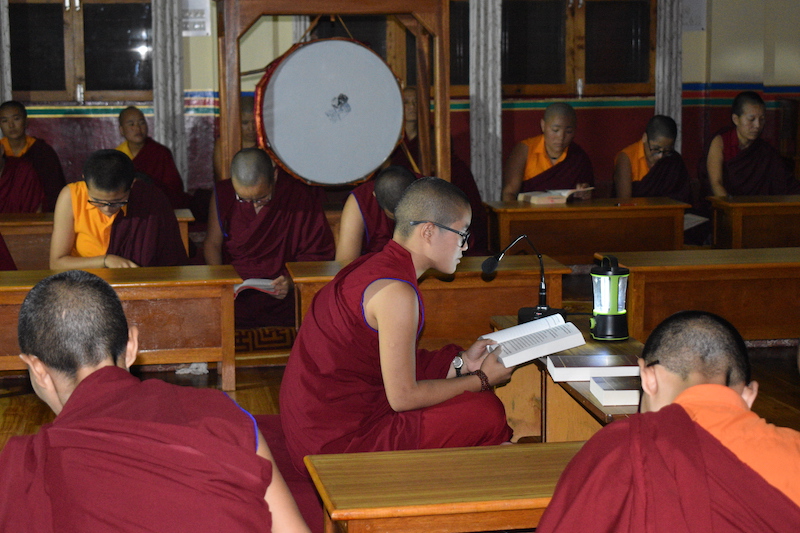
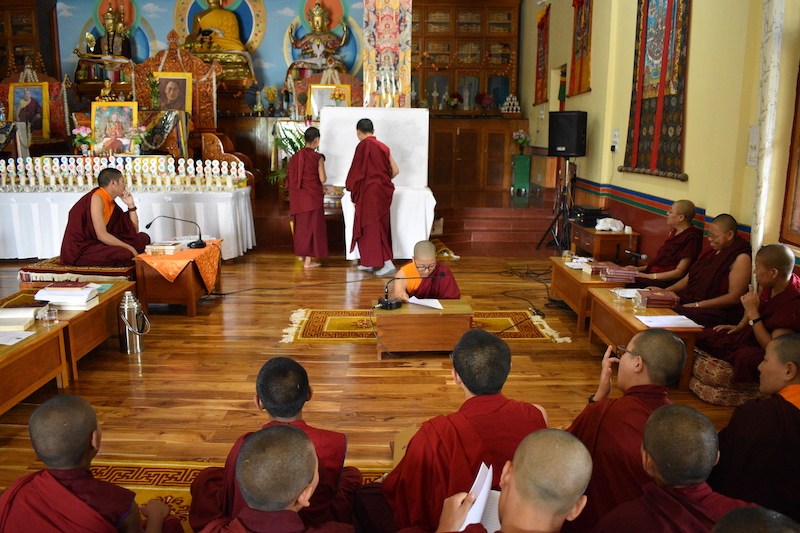
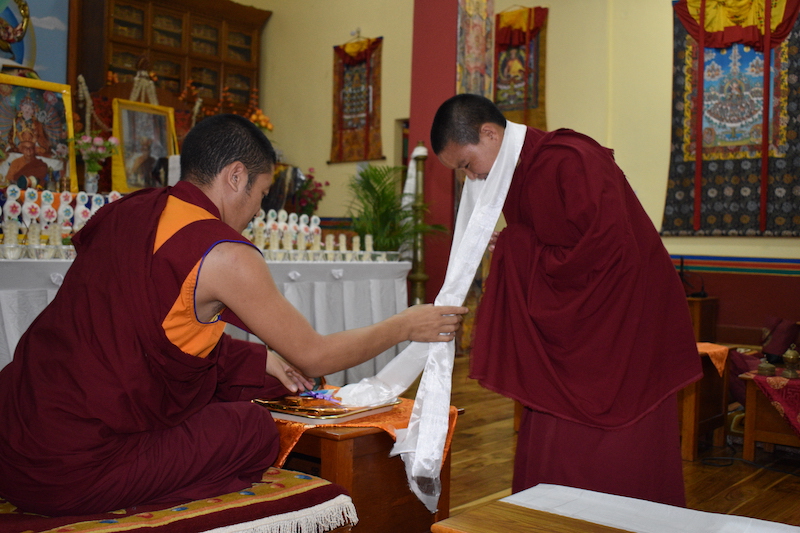
 To prevent the disease from spreading inside the nunnery, we shut the gate to visitors and all the transactions for prayers were done online. We had the basic necessities delivered to our gate so that we could stay isolated. We also barred the staff and students from leaving the nunnery grounds until and unless it was urgent. Weekend outings for the students were cancelled and the staff were strictly instructed not to leave the premises without permission.
To prevent the disease from spreading inside the nunnery, we shut the gate to visitors and all the transactions for prayers were done online. We had the basic necessities delivered to our gate so that we could stay isolated. We also barred the staff and students from leaving the nunnery grounds until and unless it was urgent. Weekend outings for the students were cancelled and the staff were strictly instructed not to leave the premises without permission.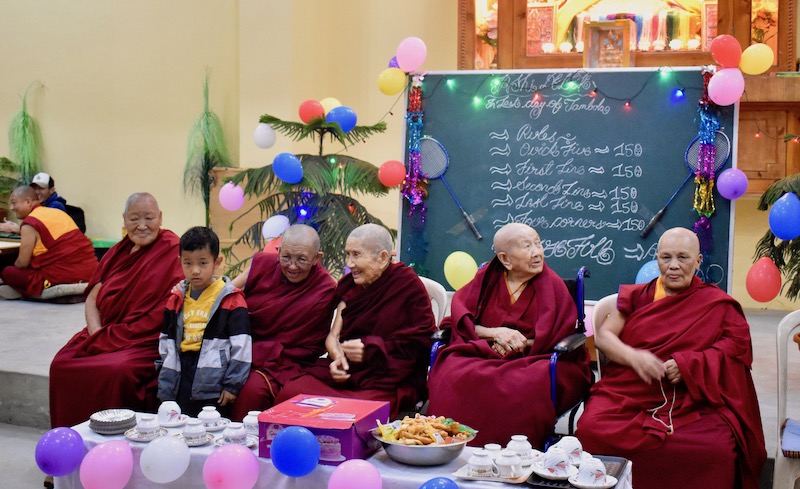
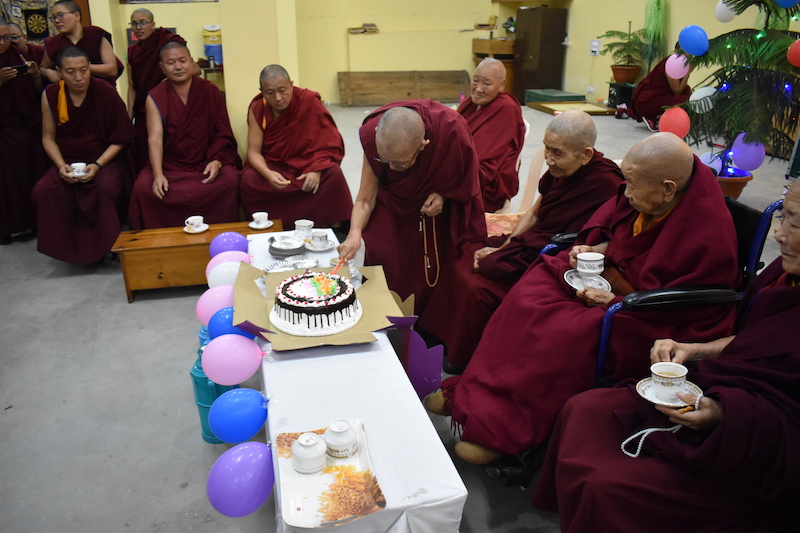
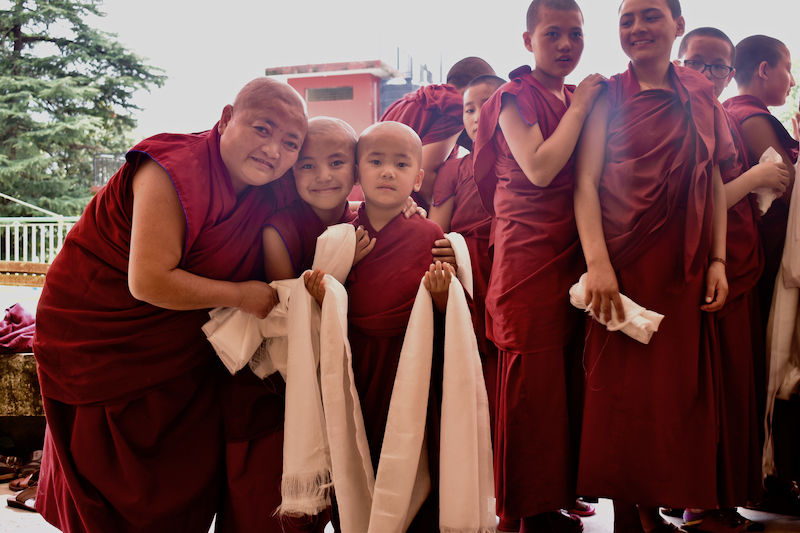

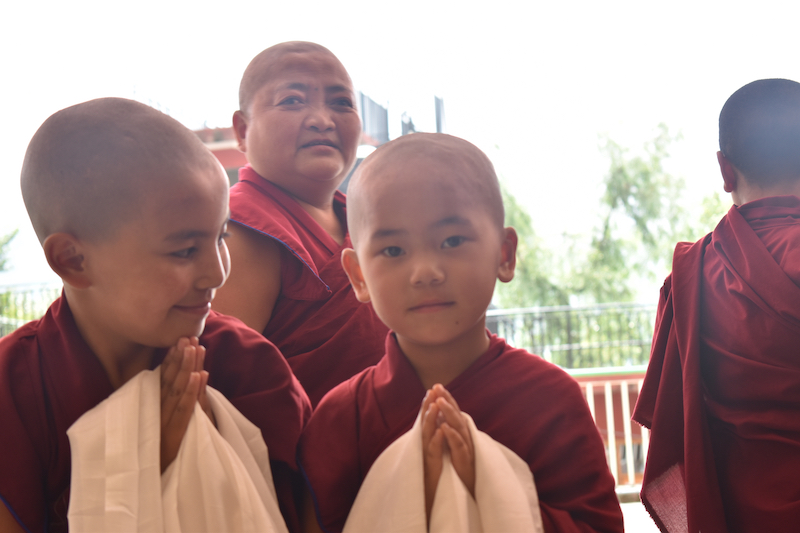
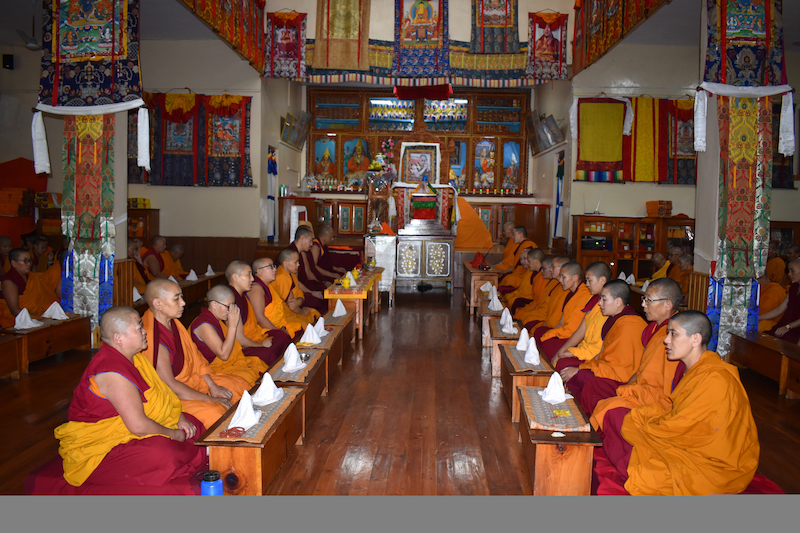
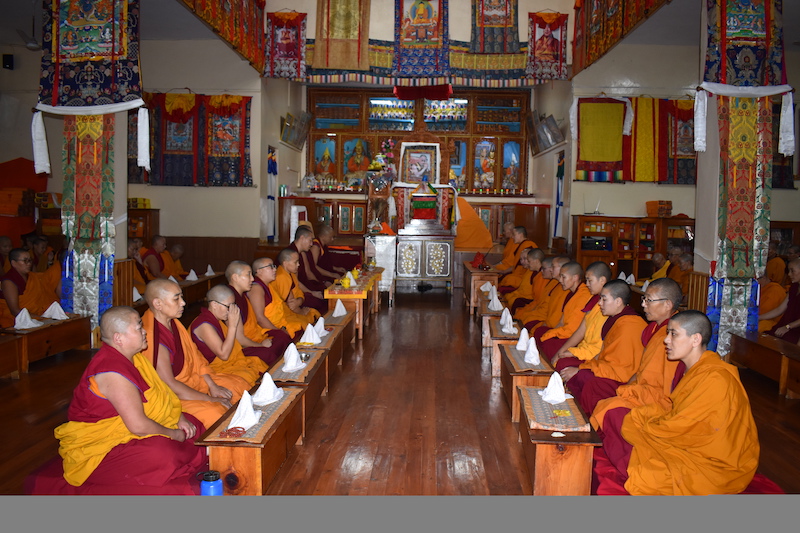
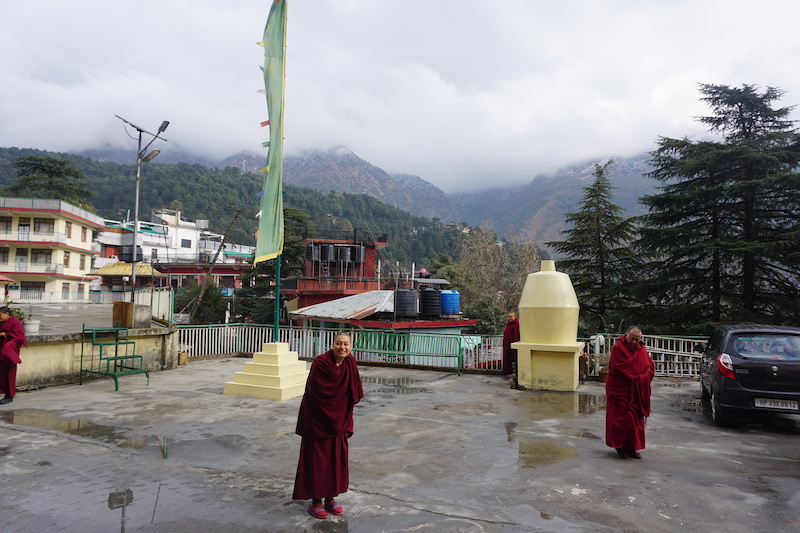
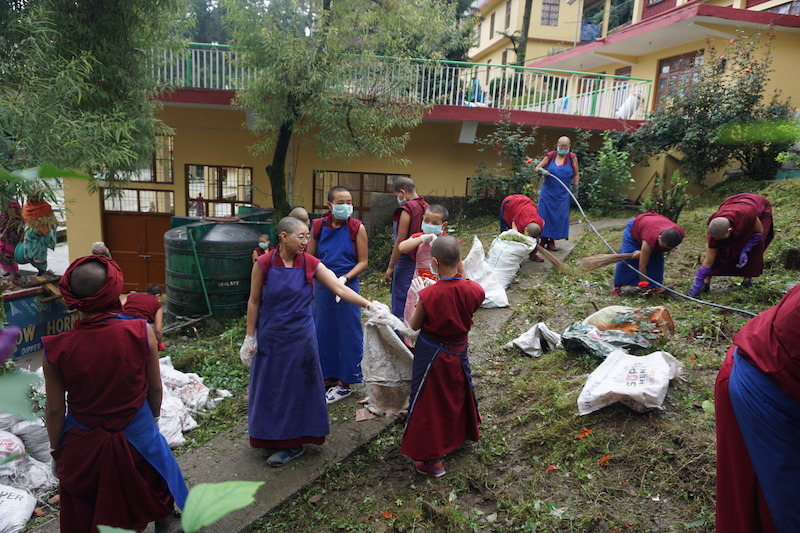
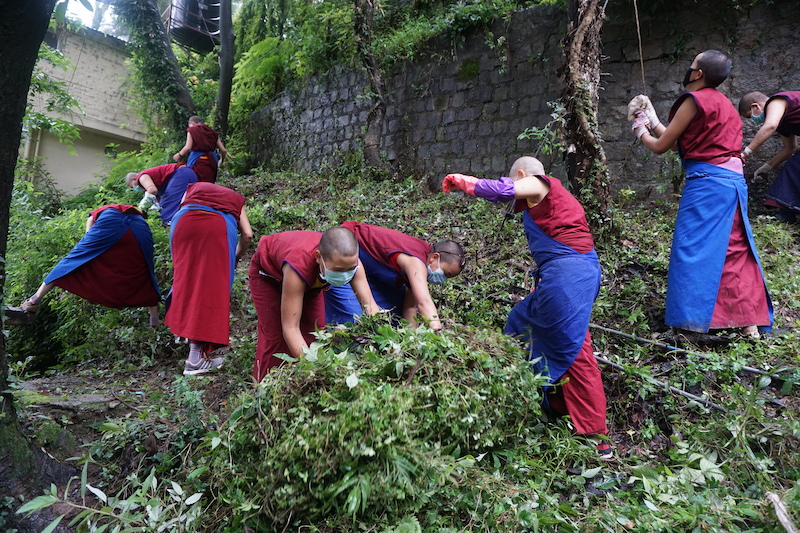




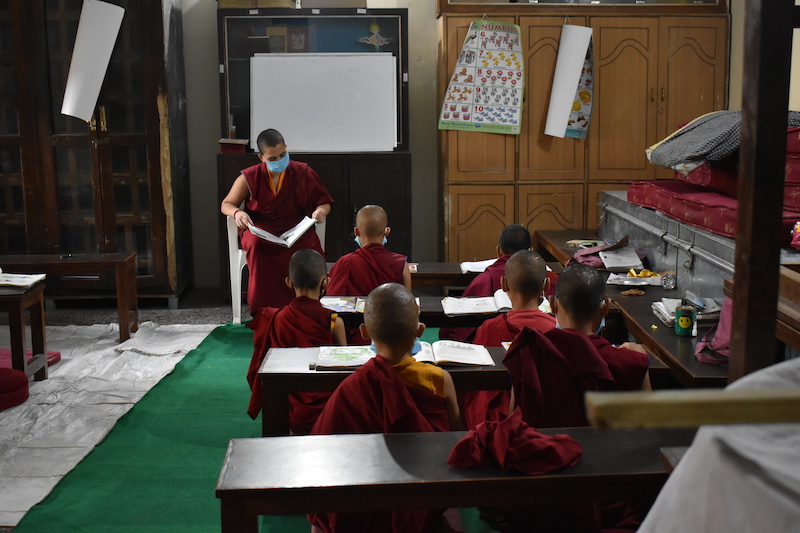


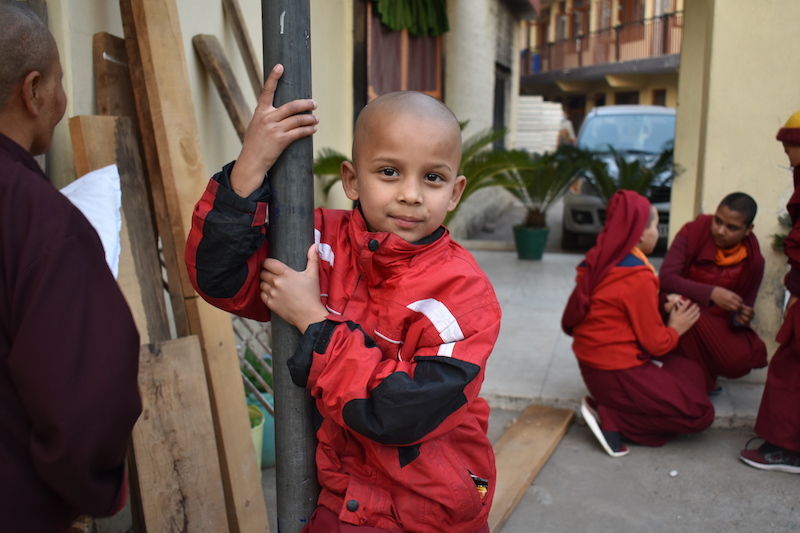
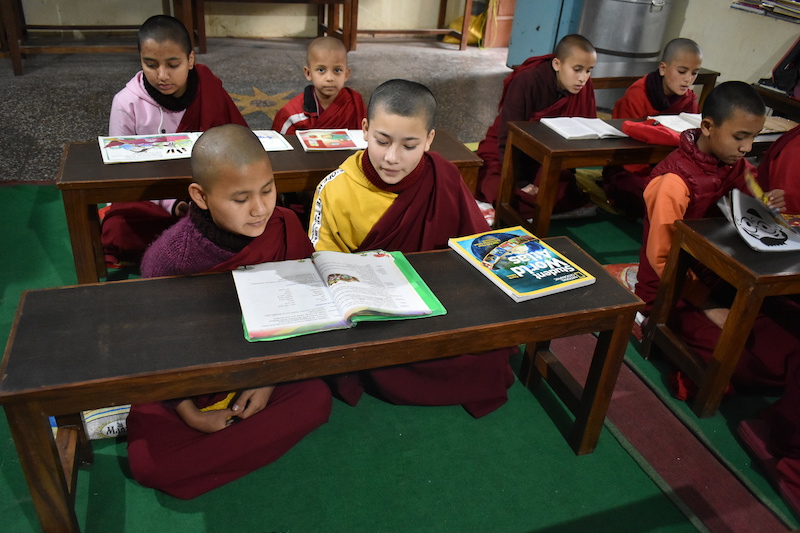
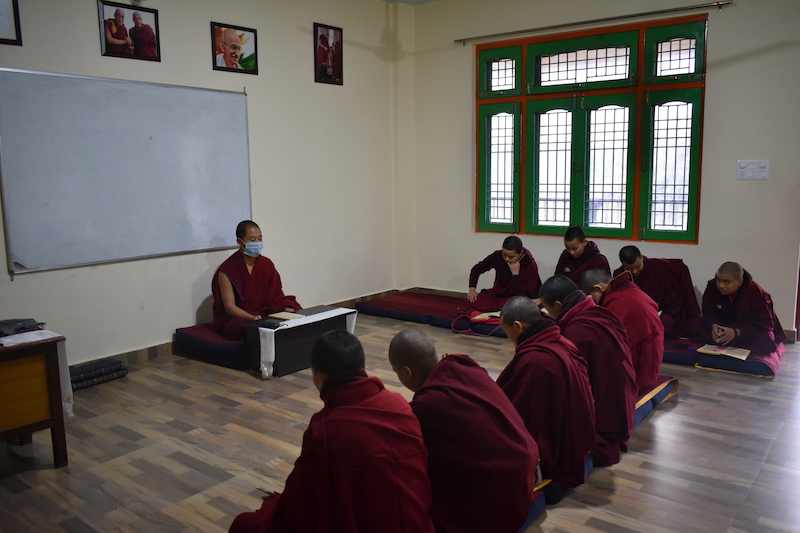
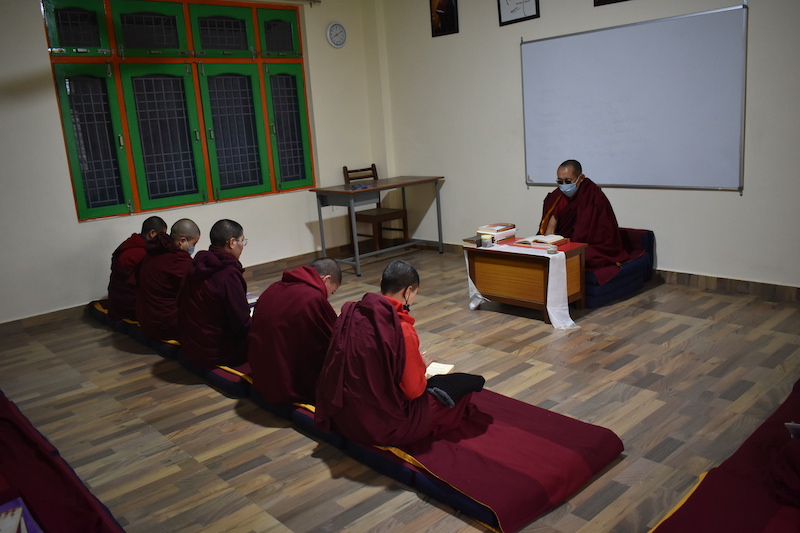
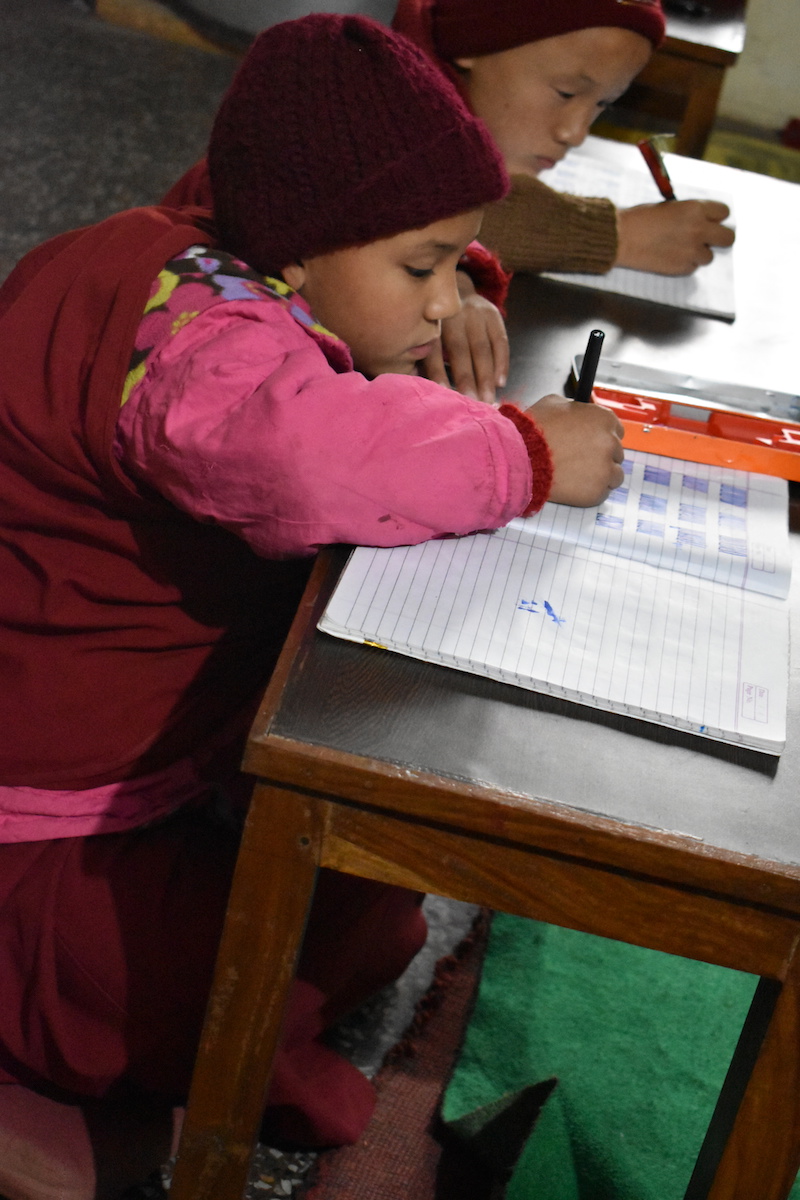

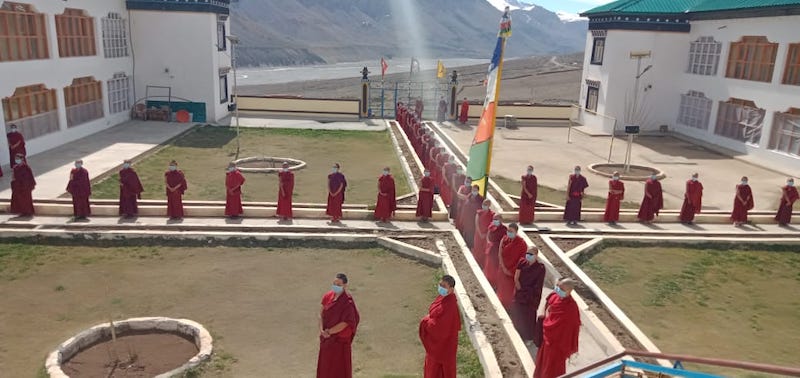
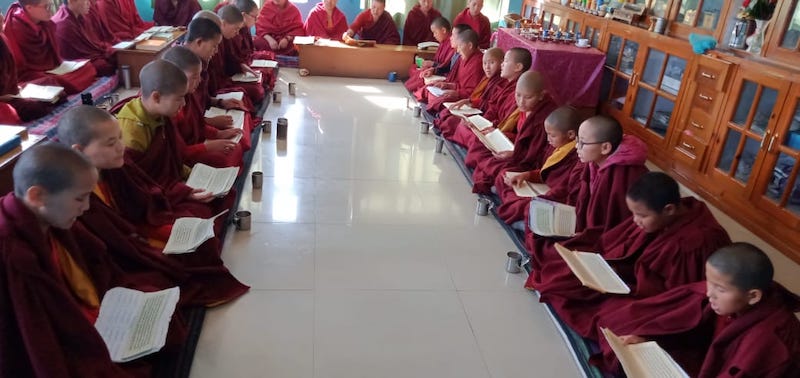
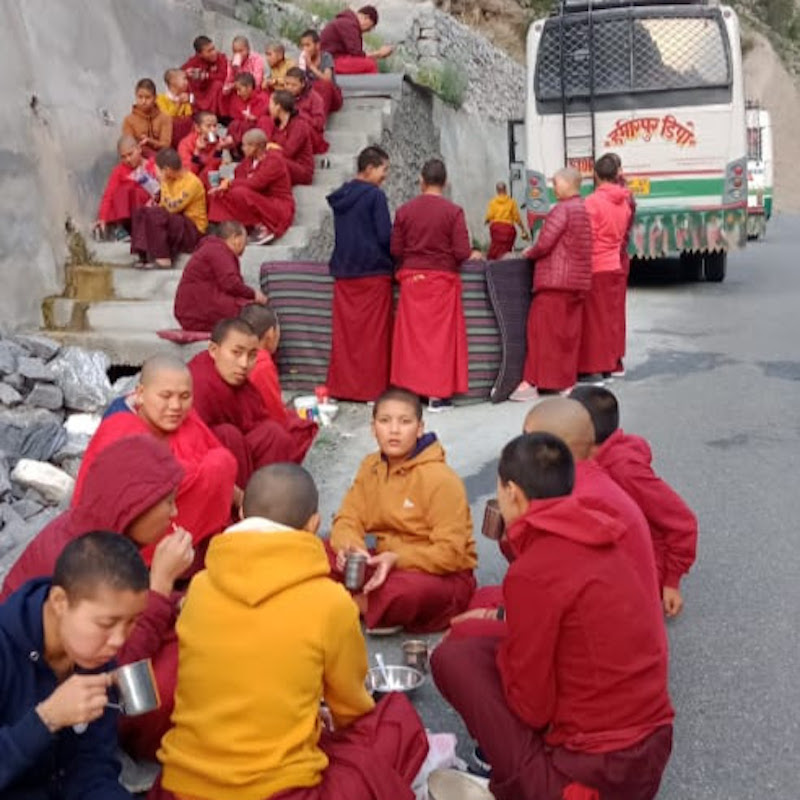
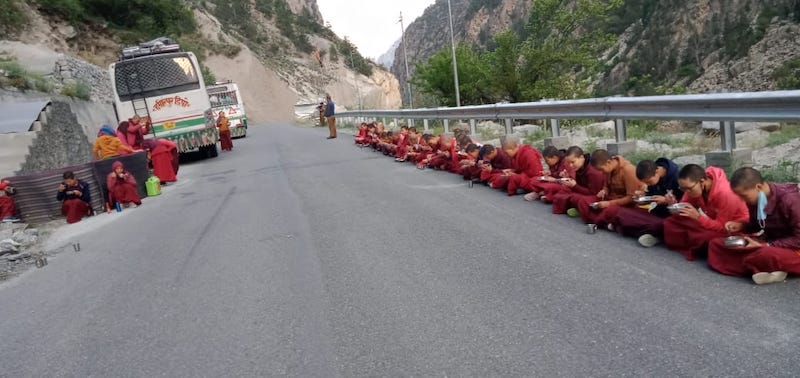
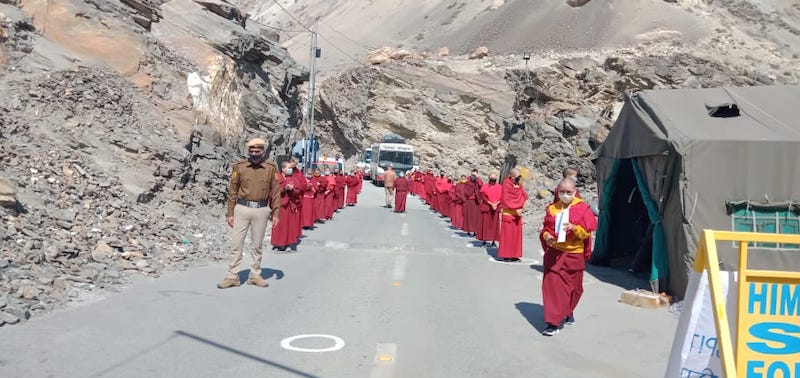
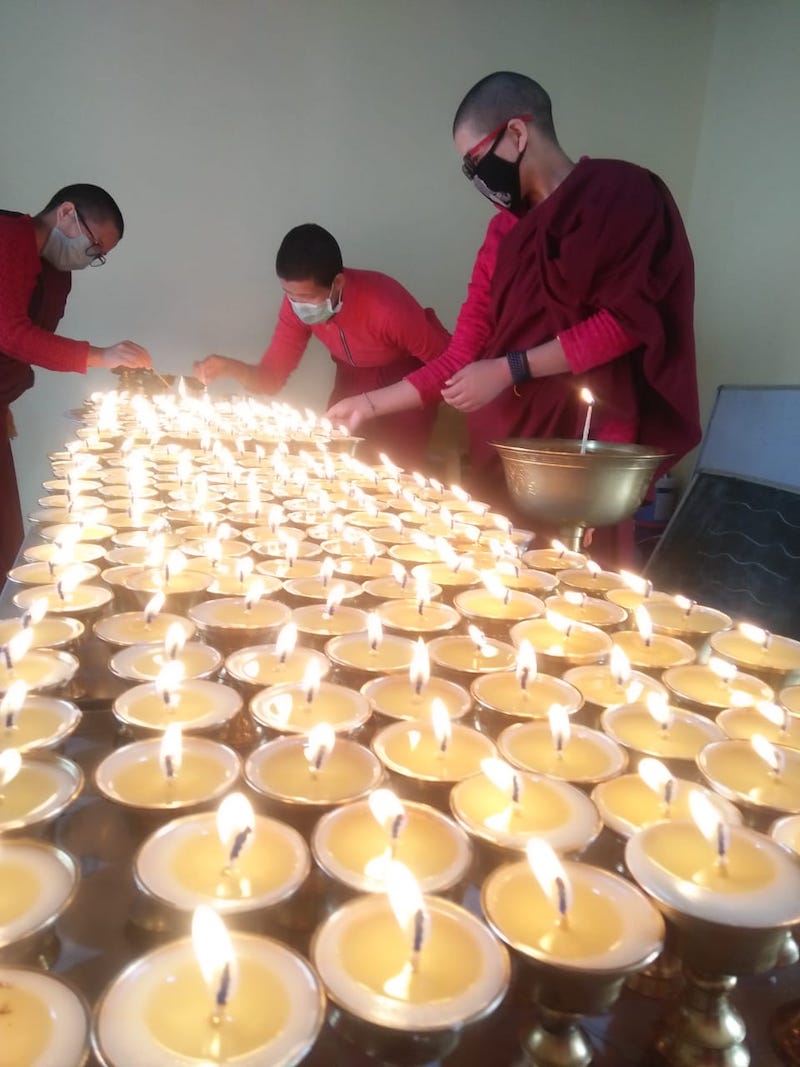
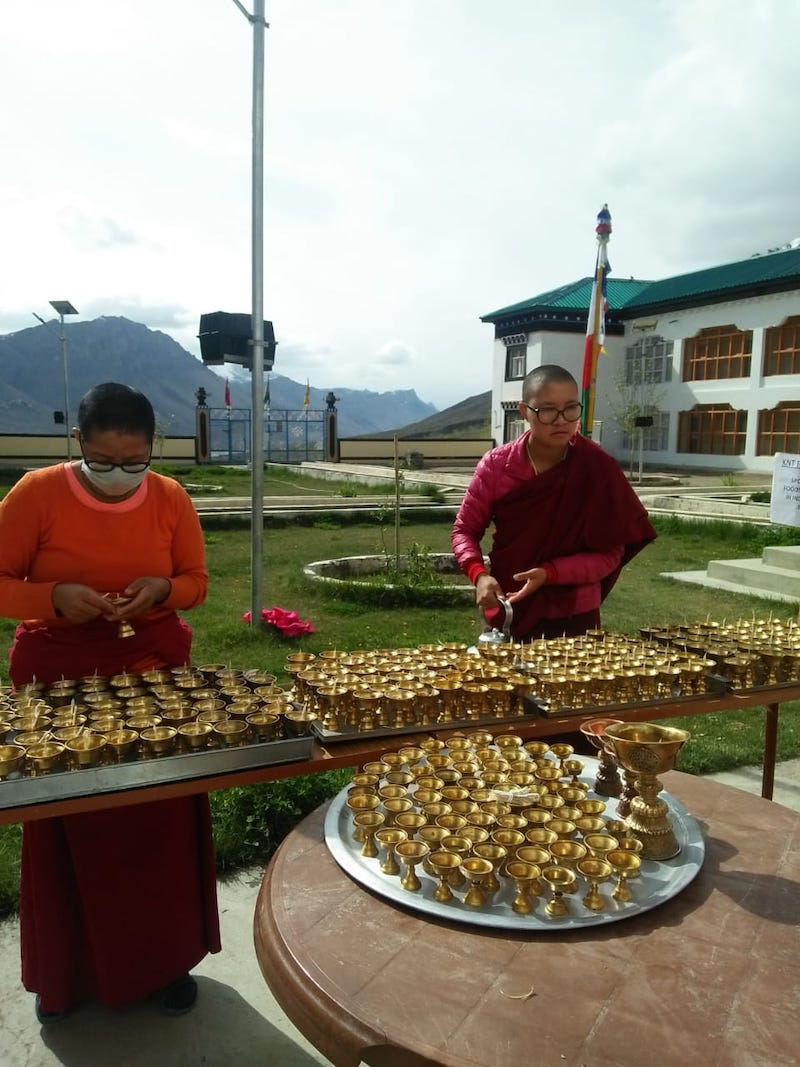
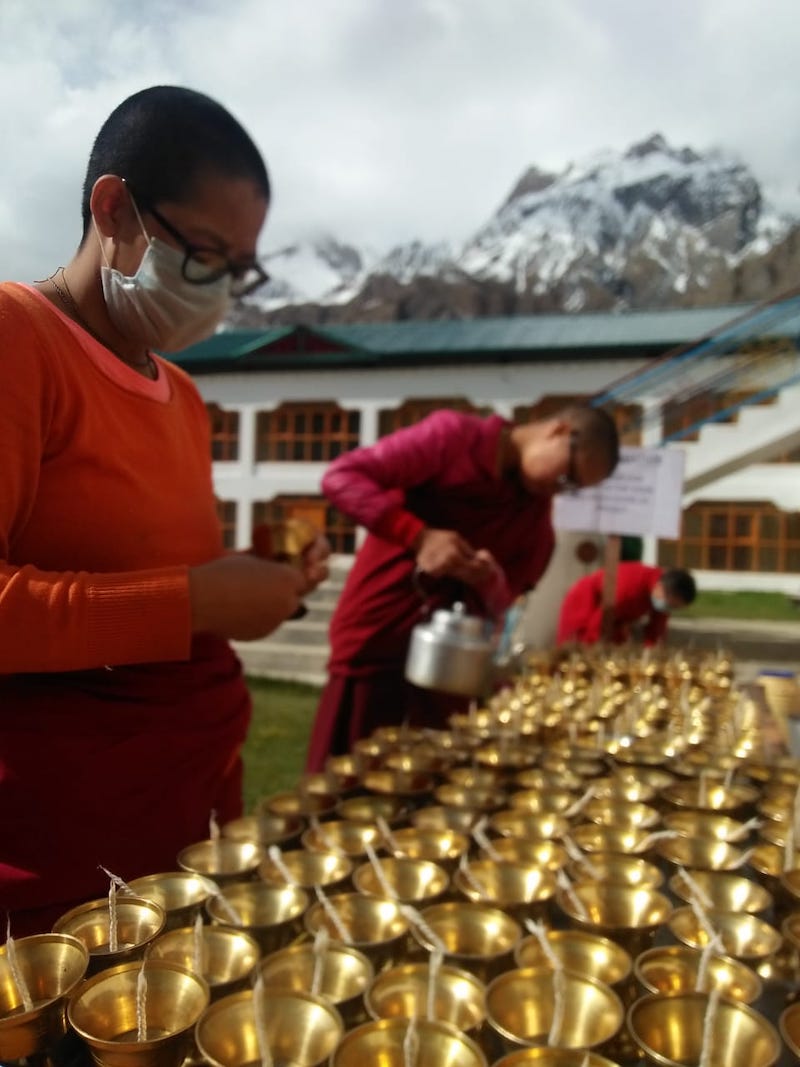
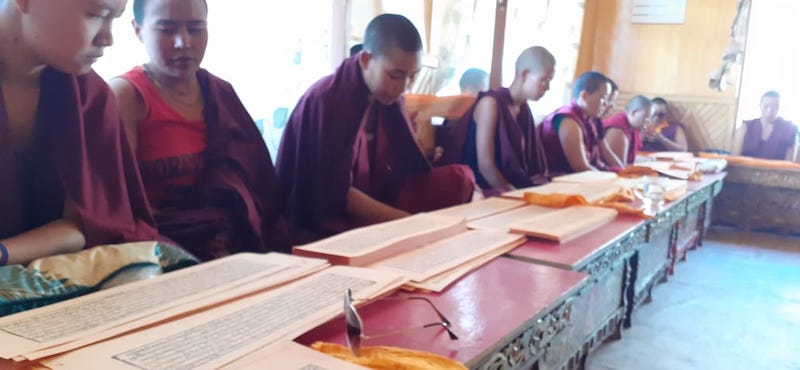
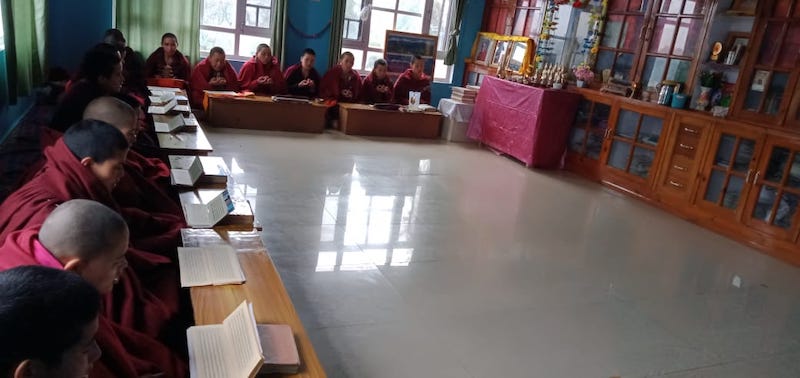
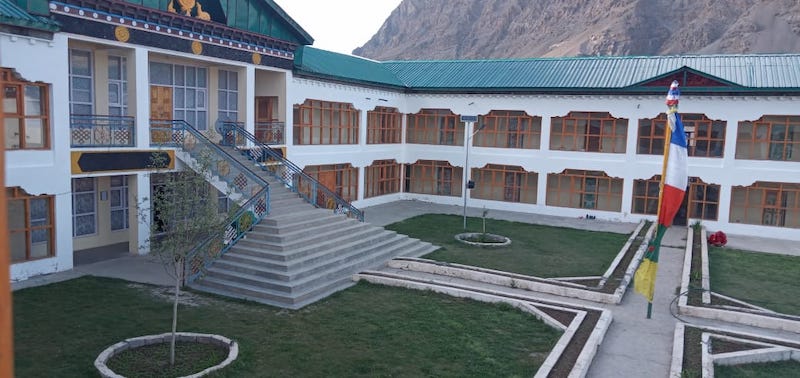
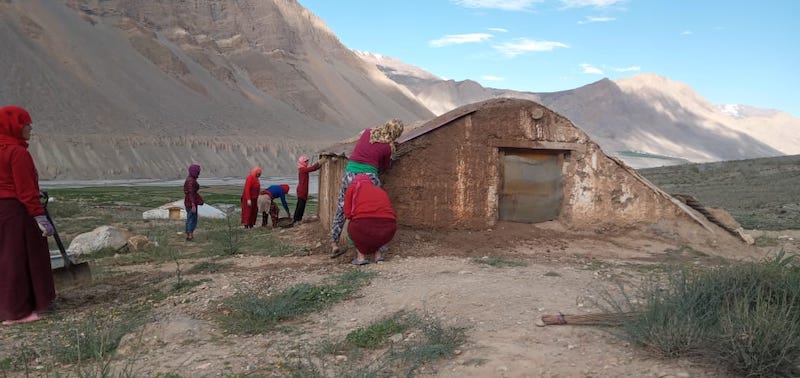
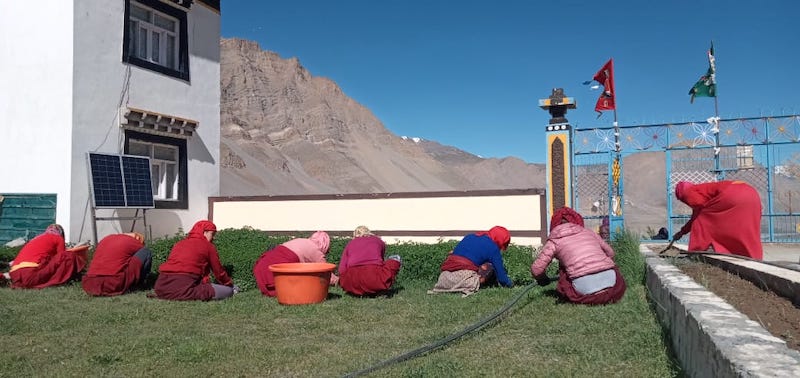
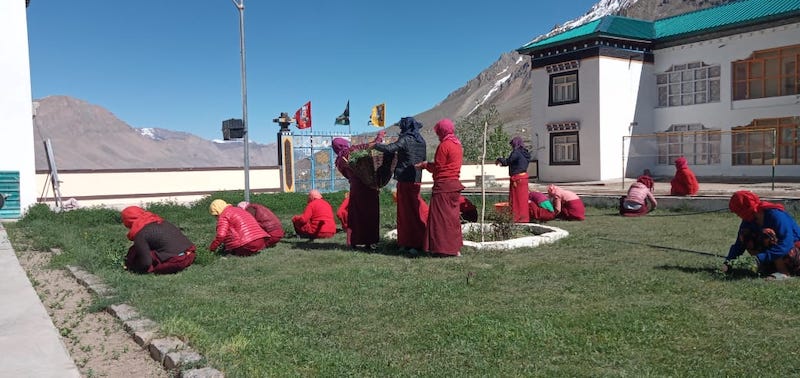
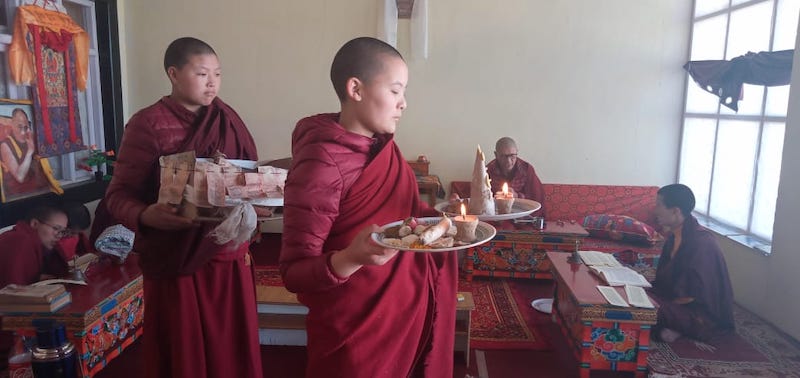
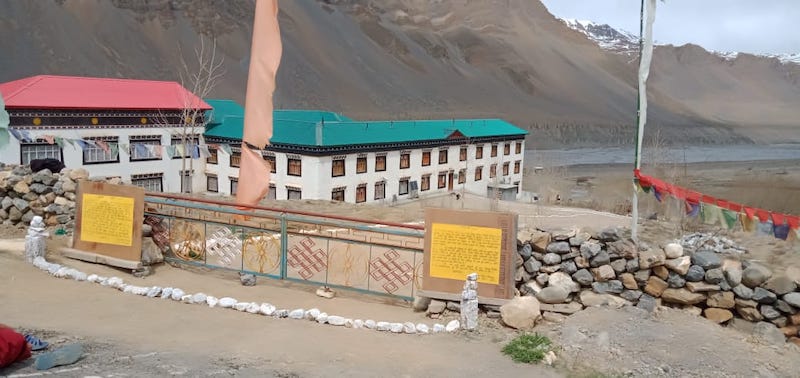
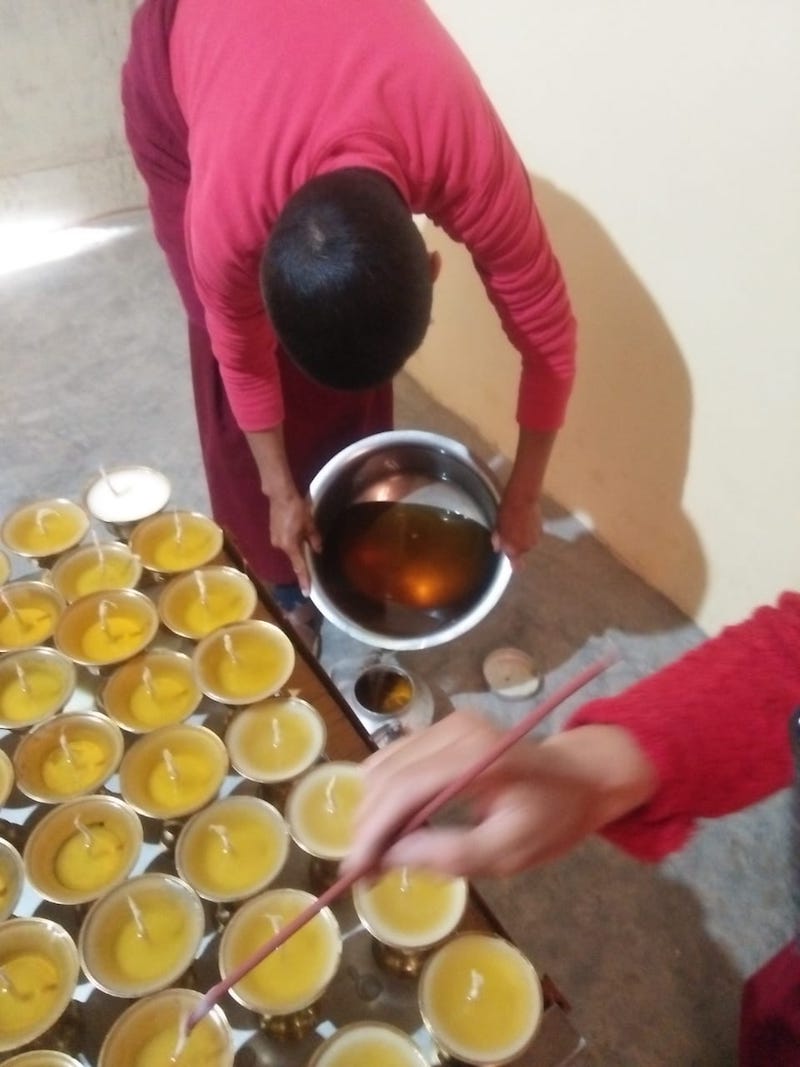
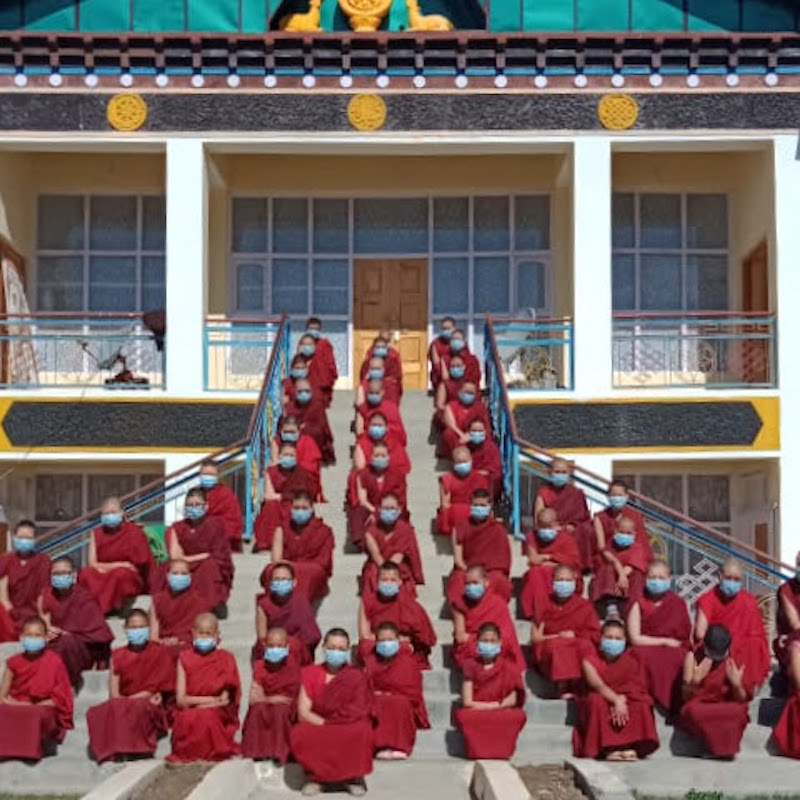
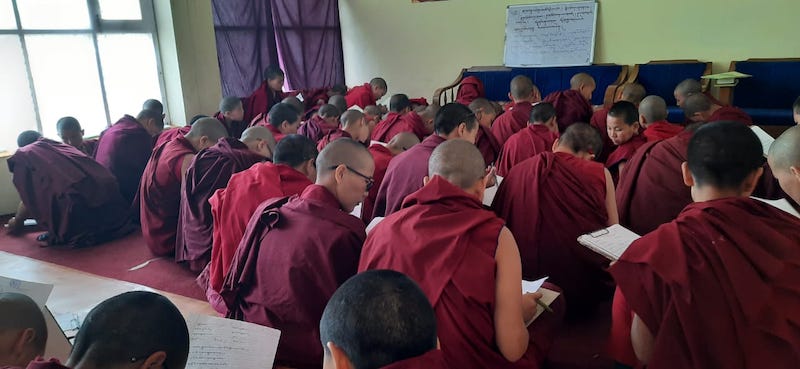
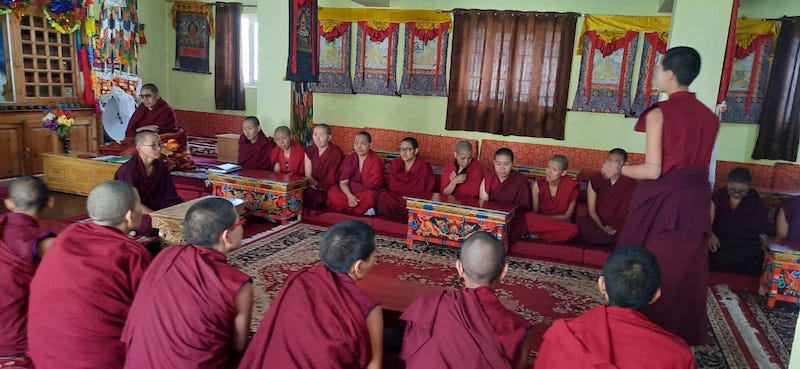
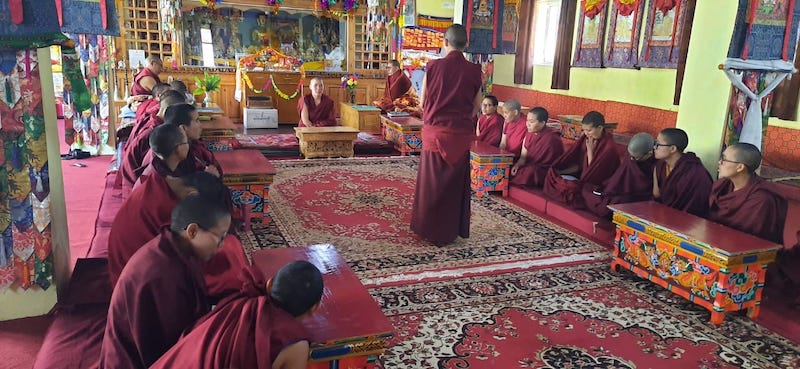
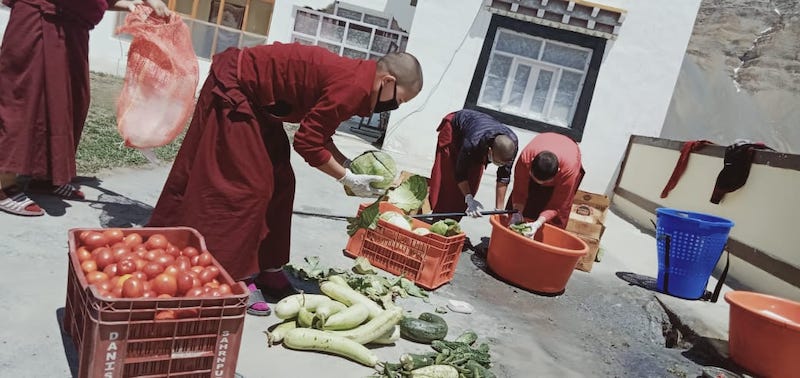
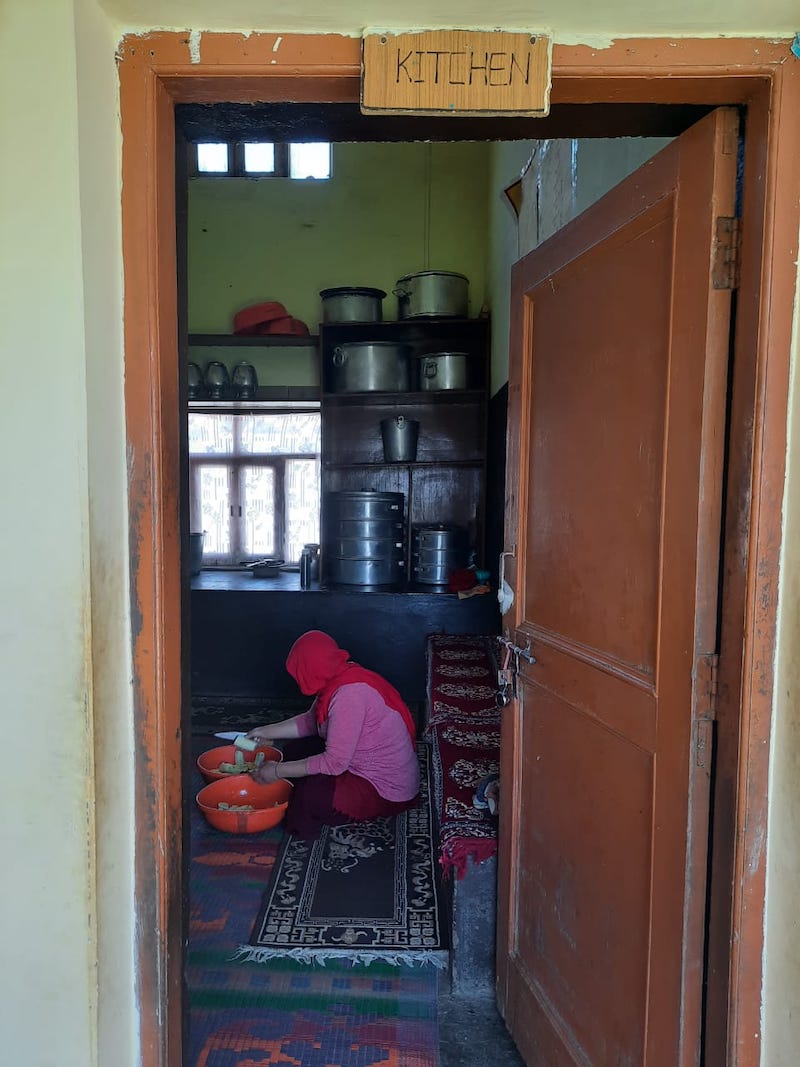
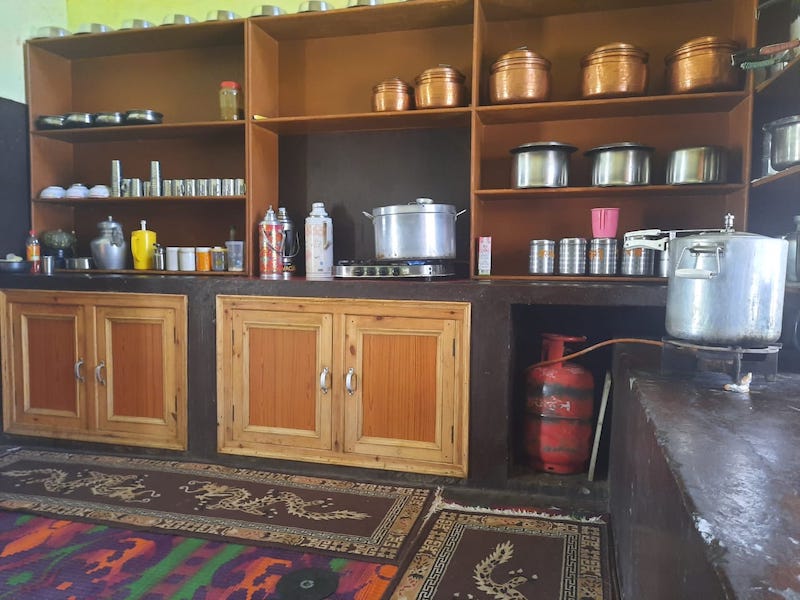
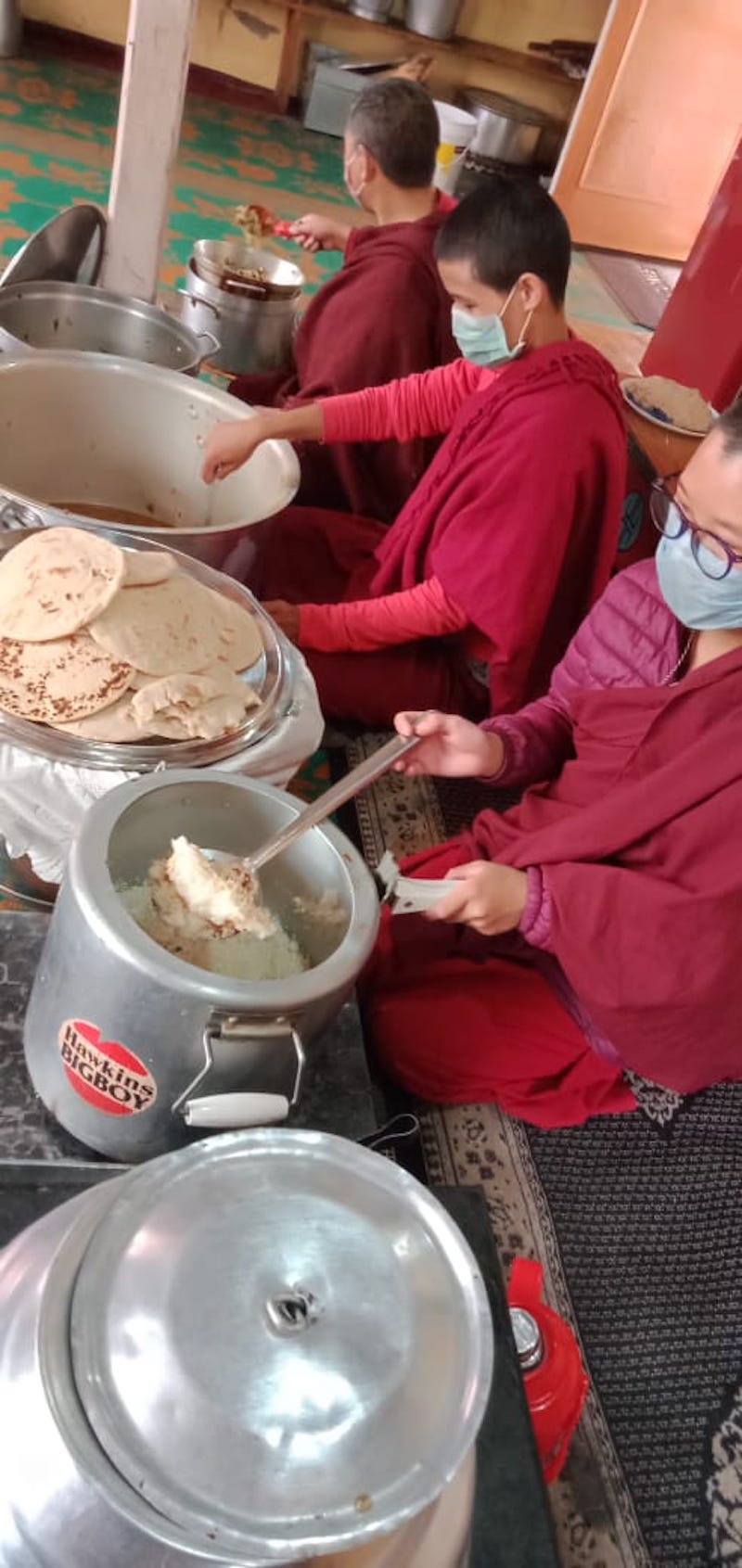
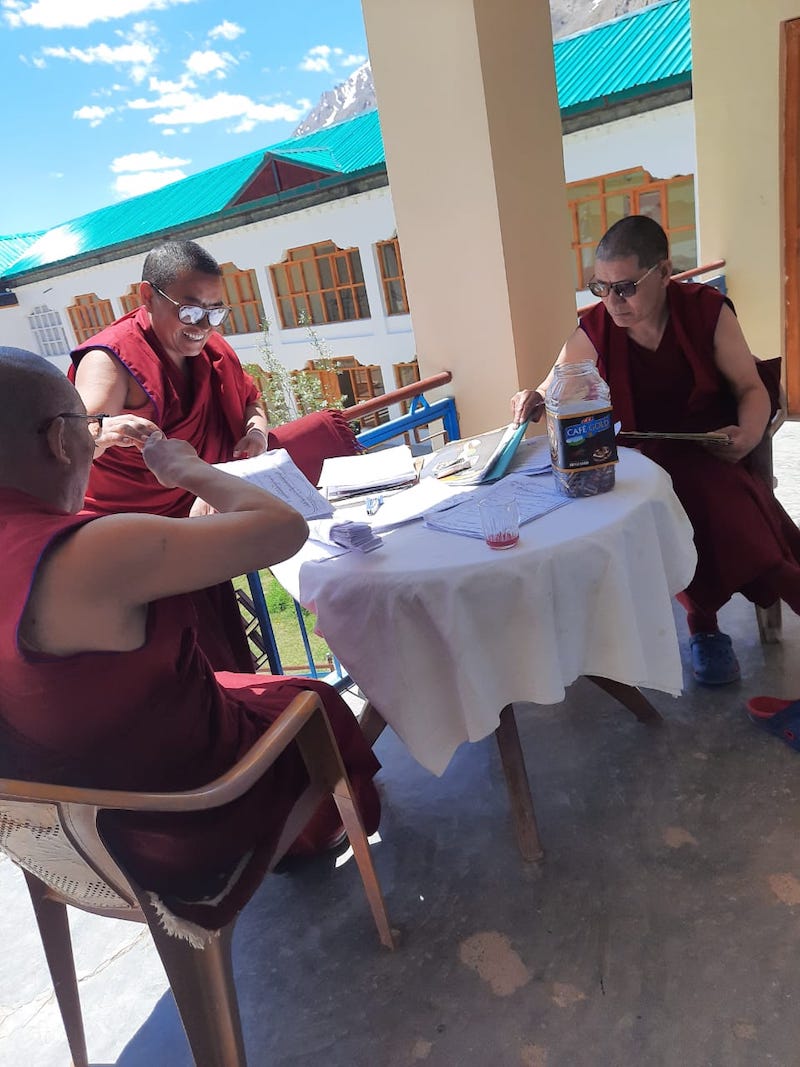
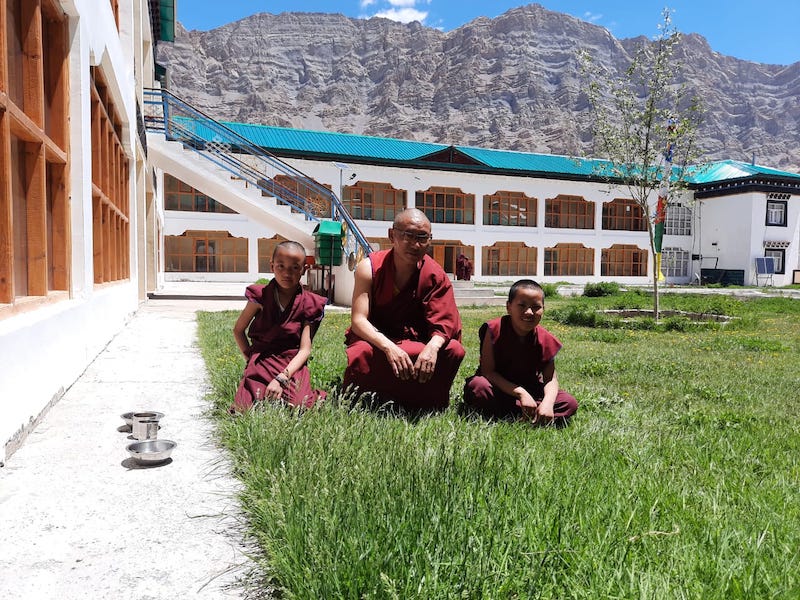
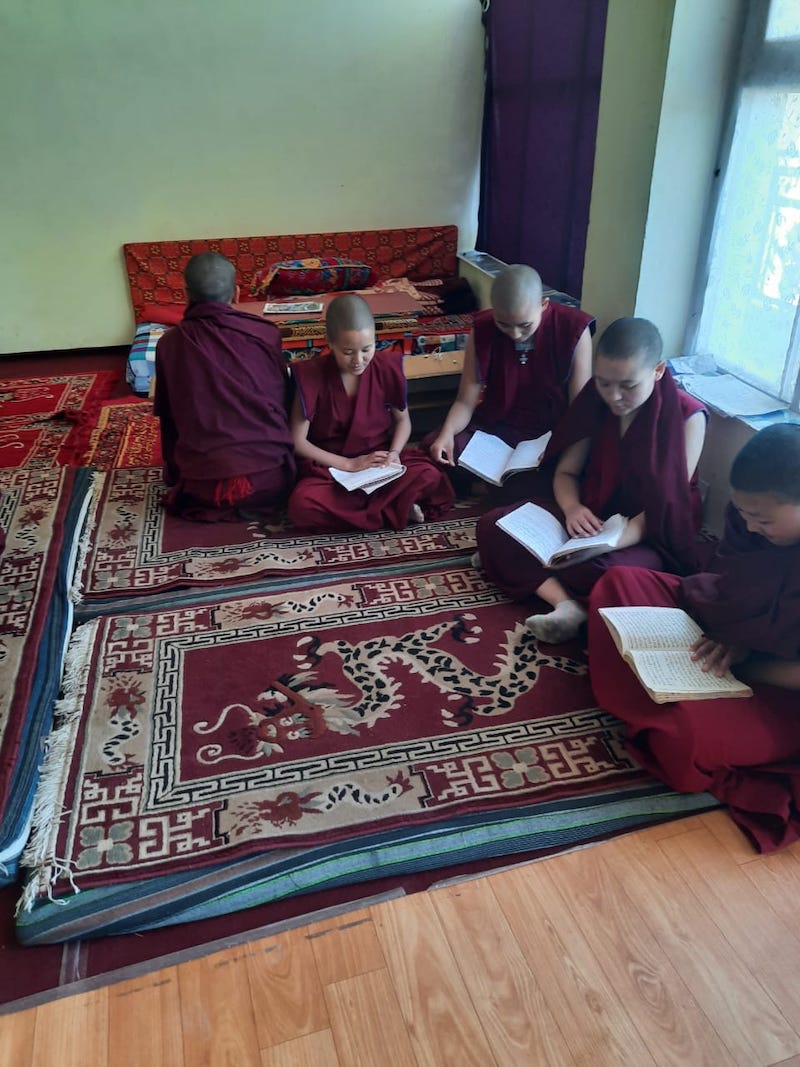
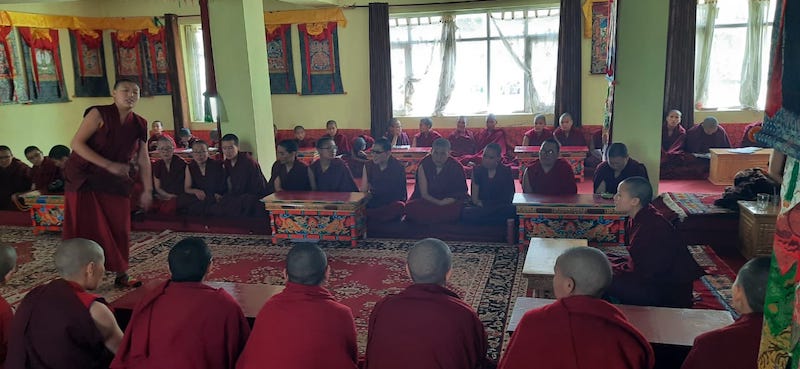
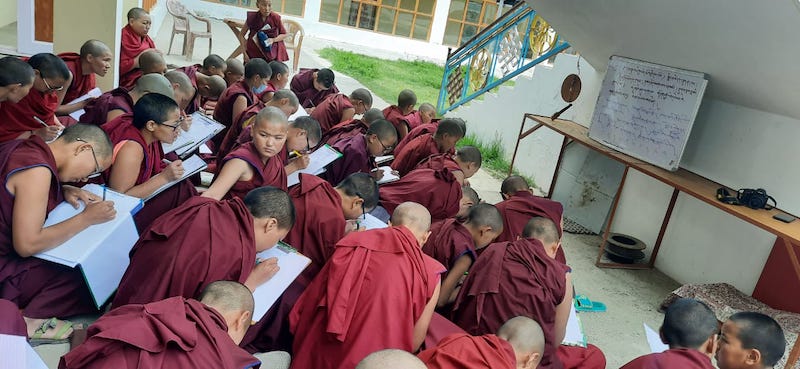
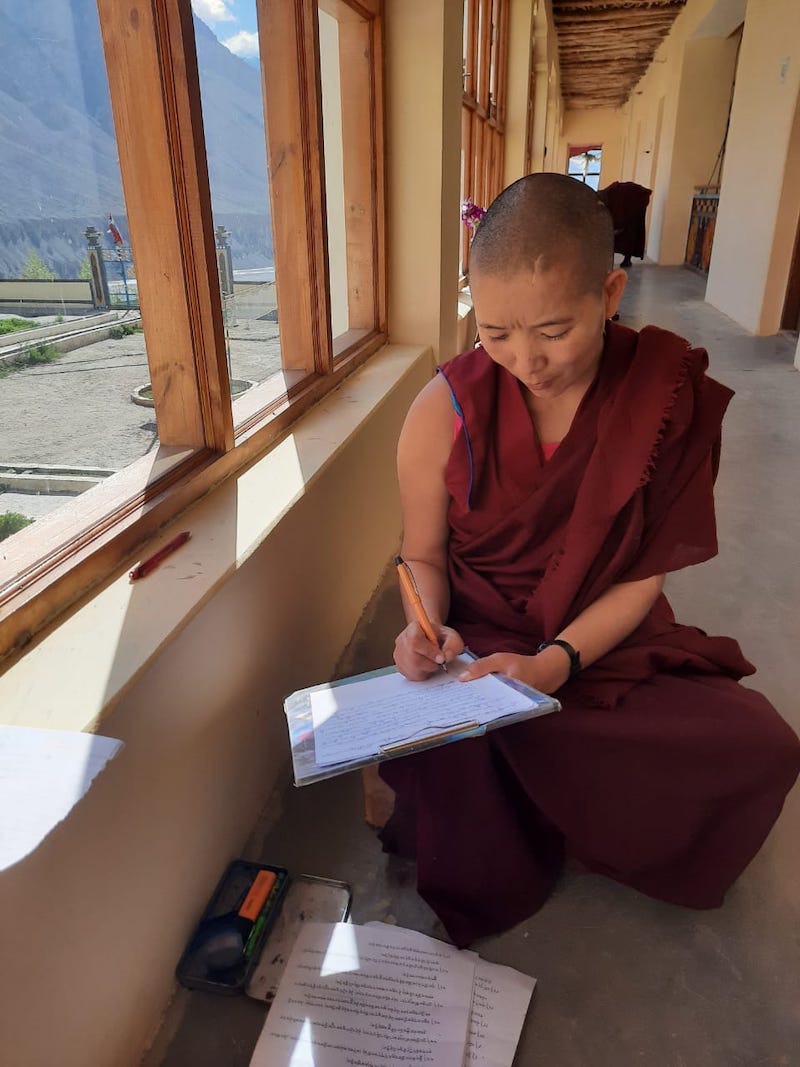
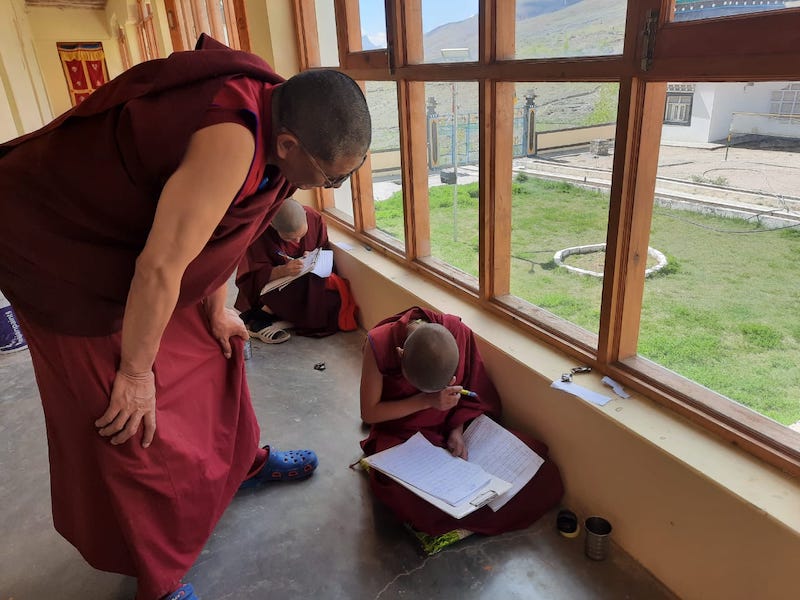
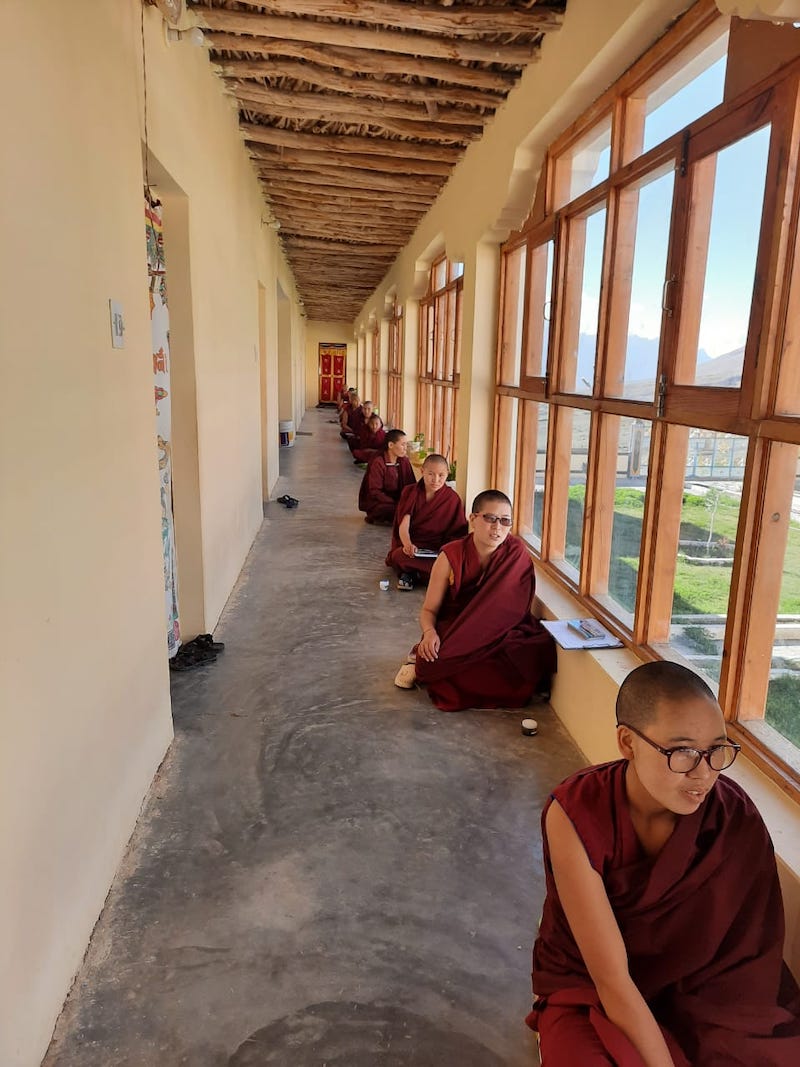
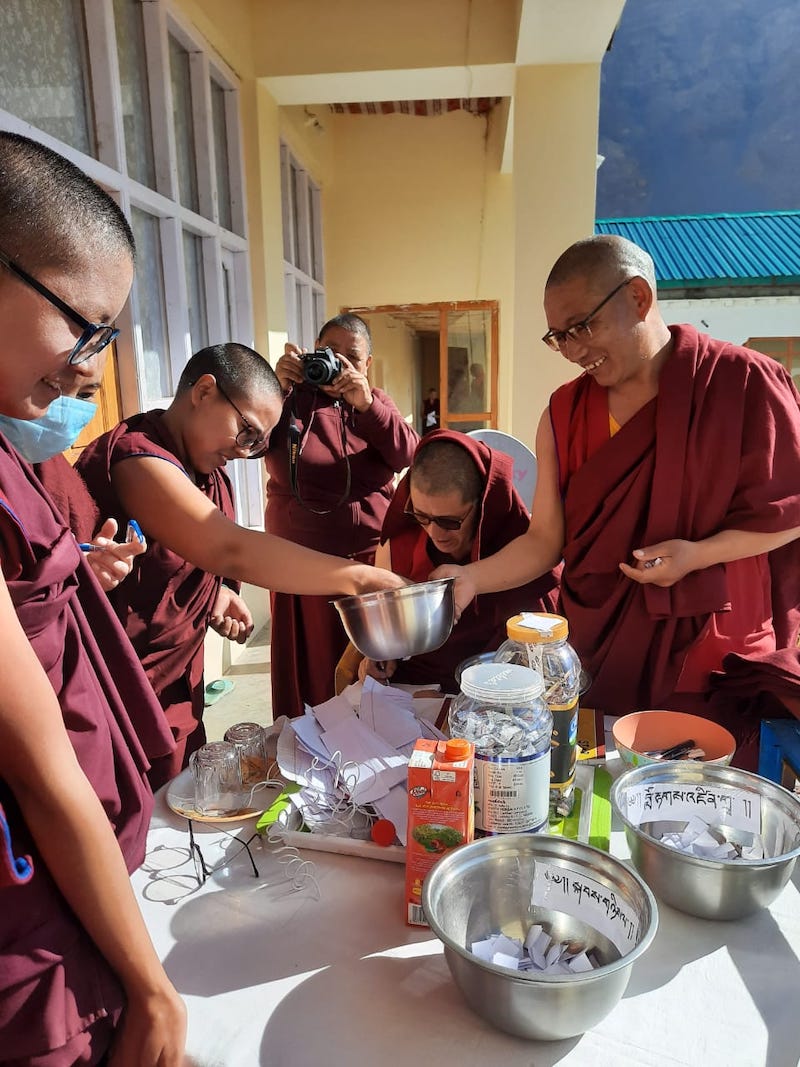
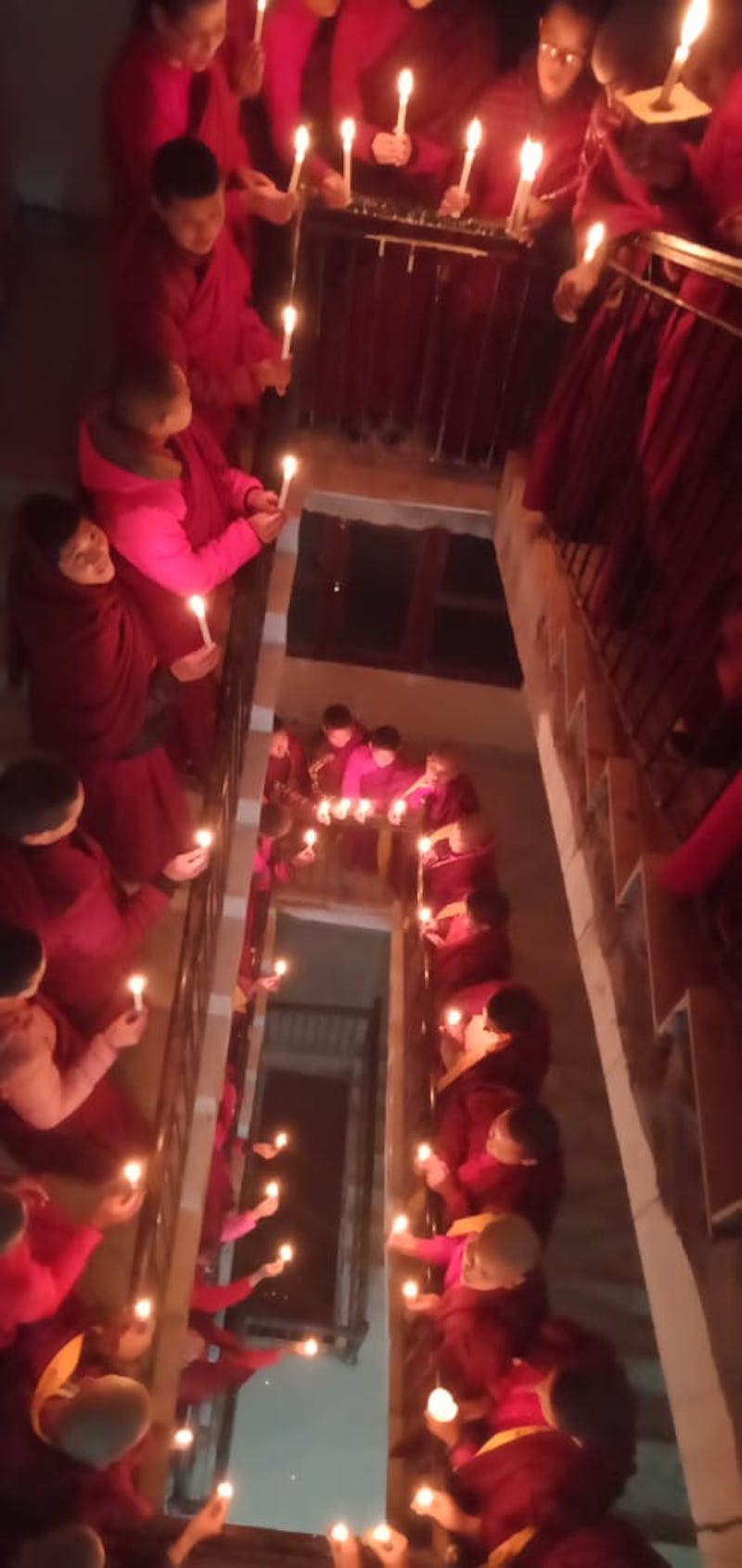
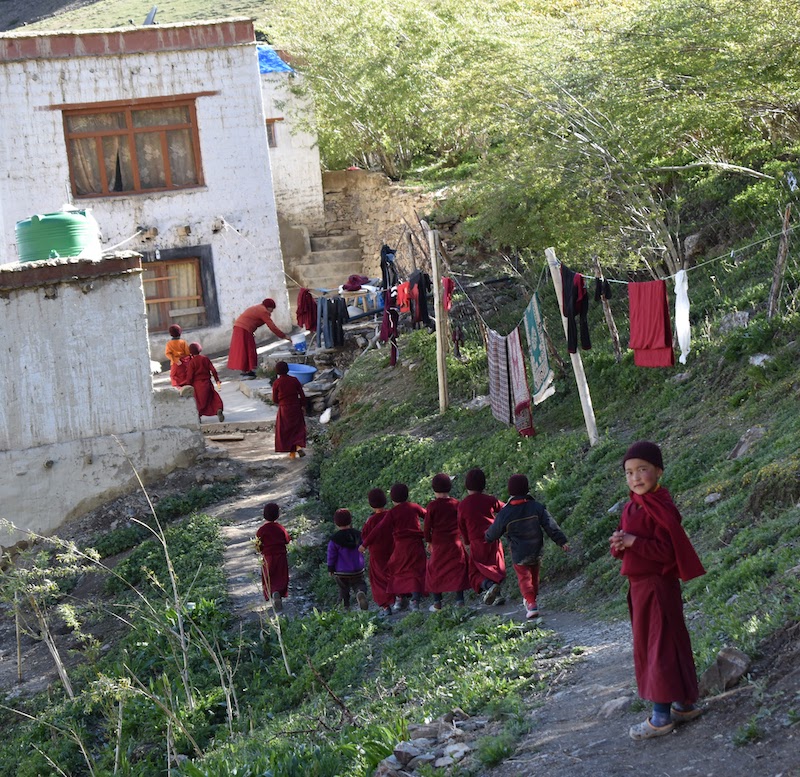
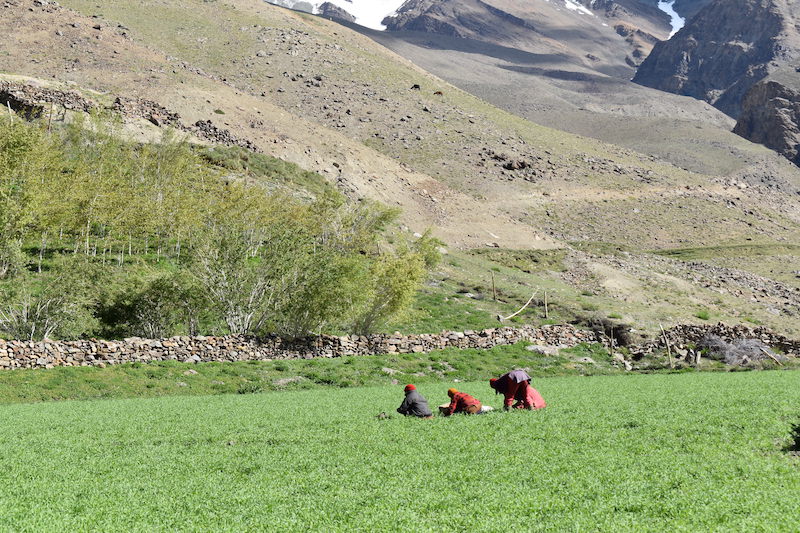
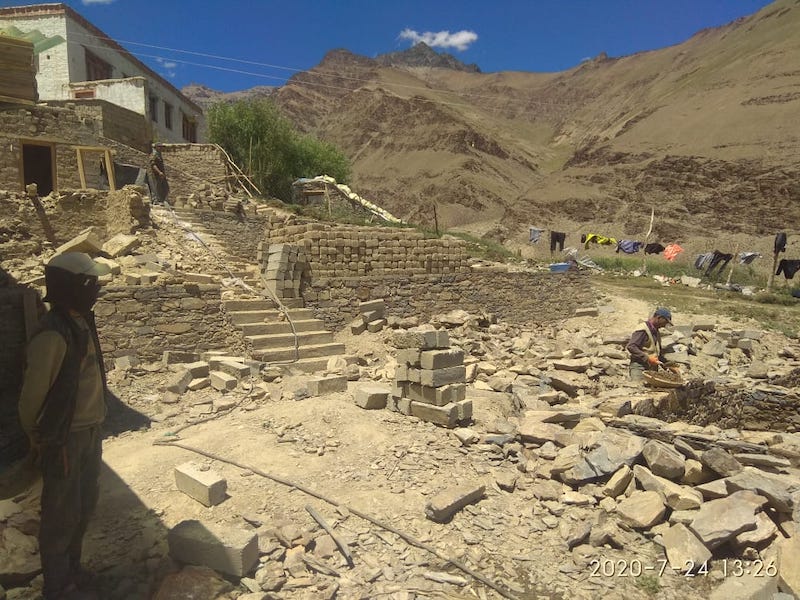
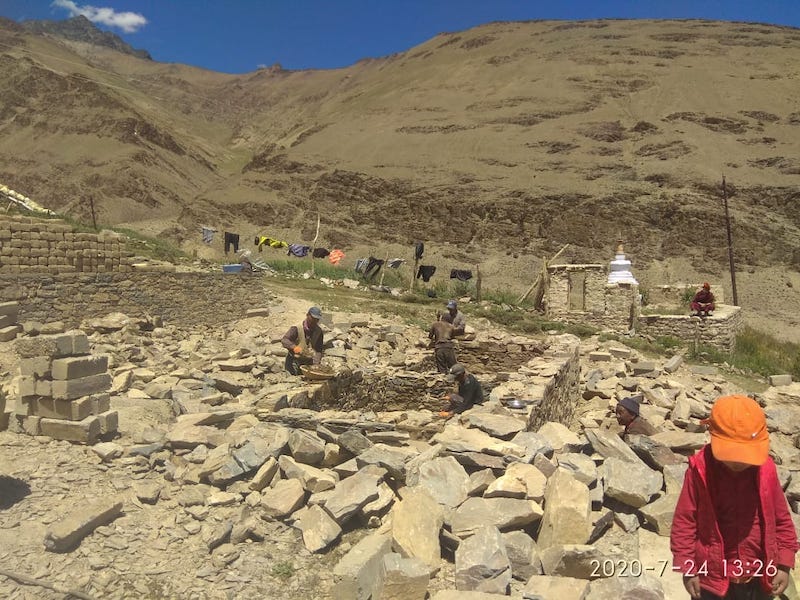
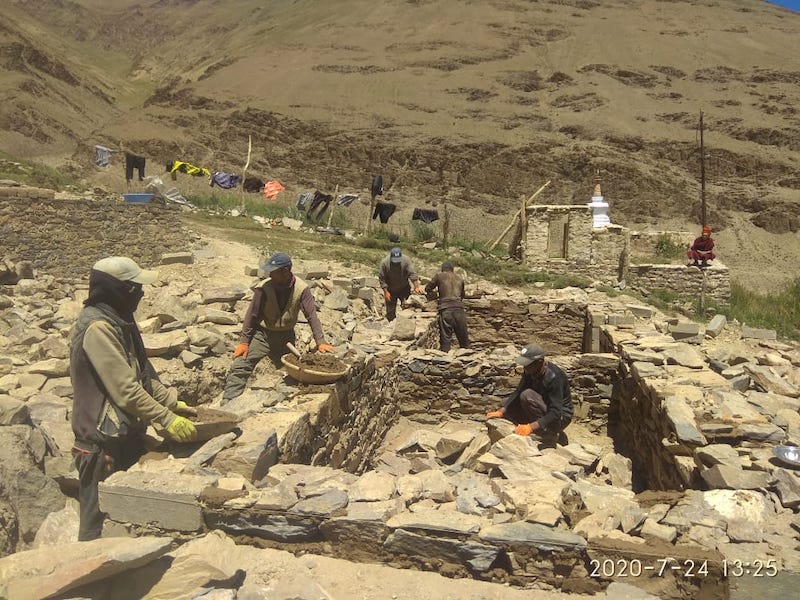
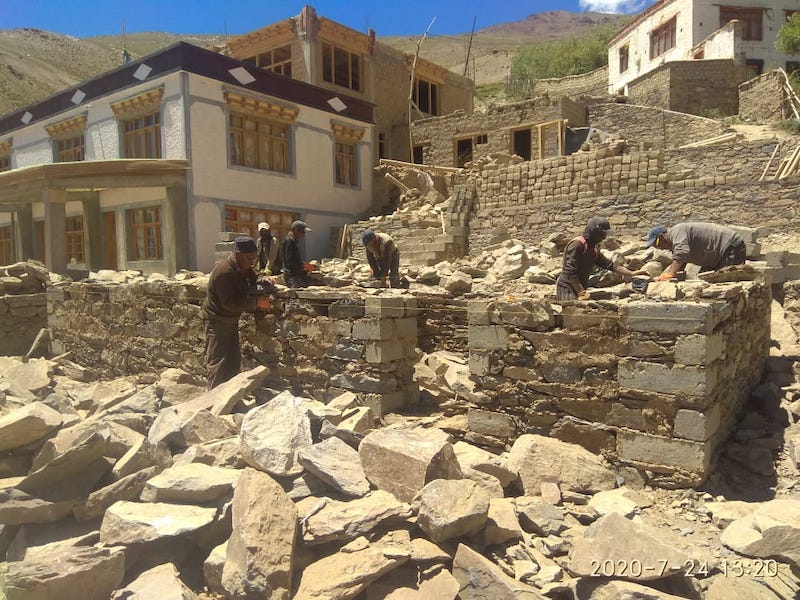
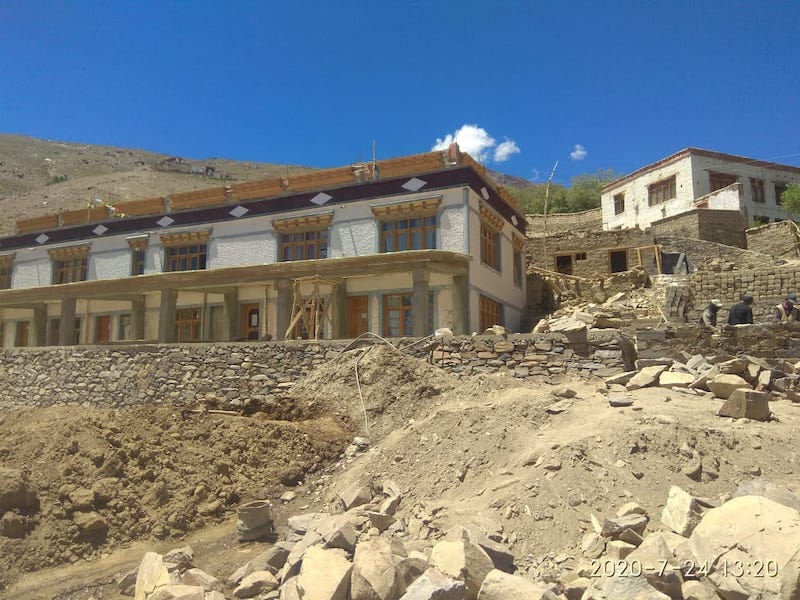
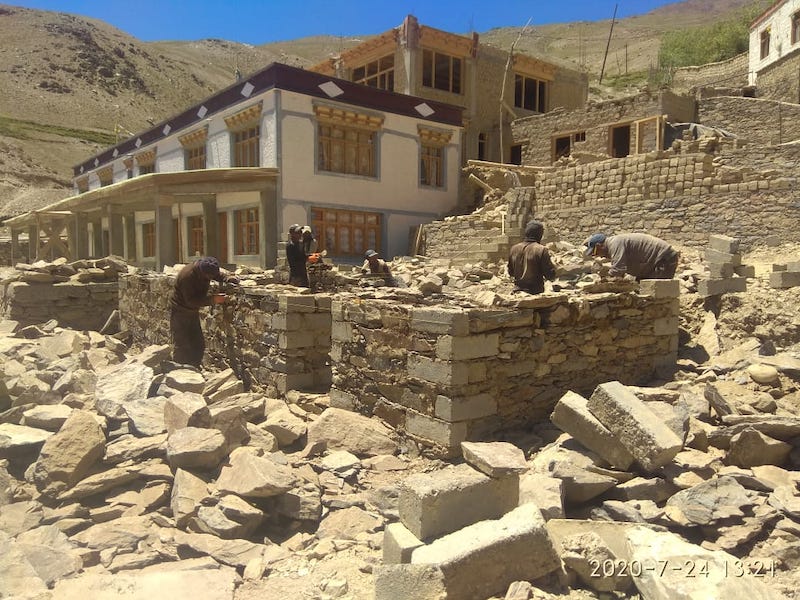
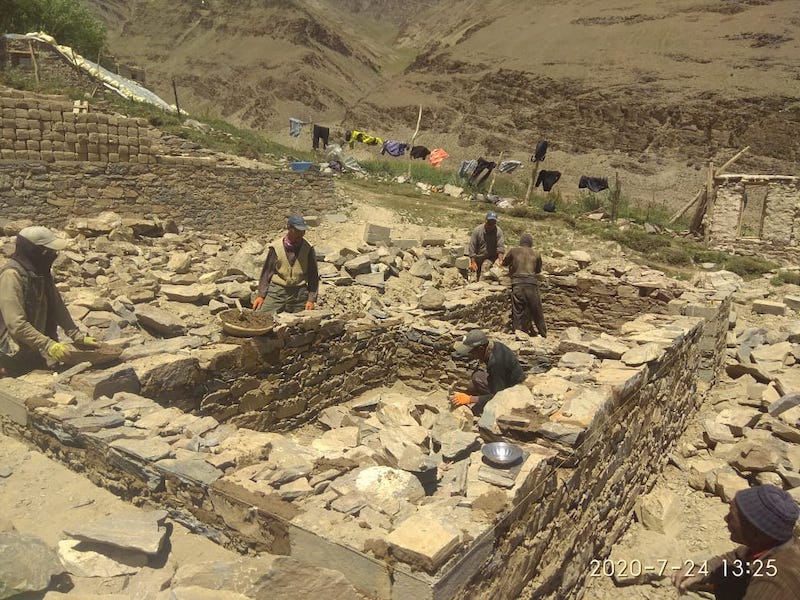
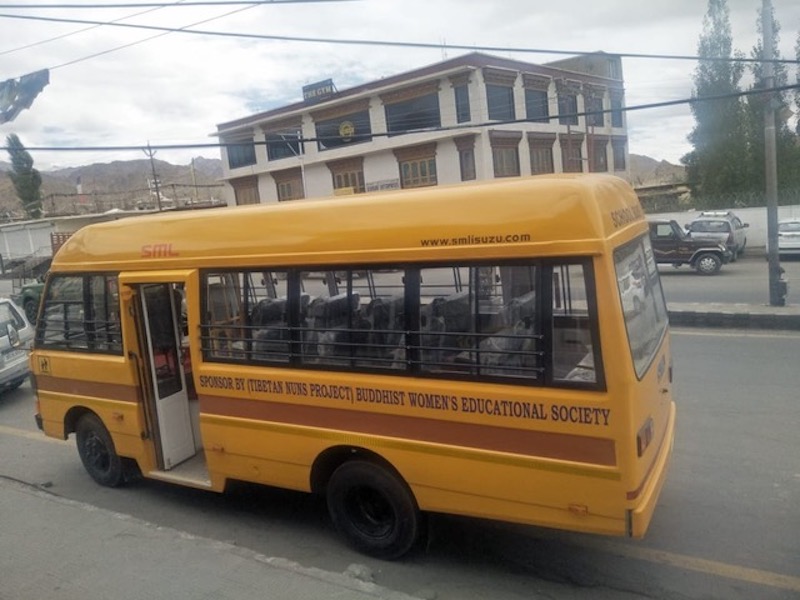
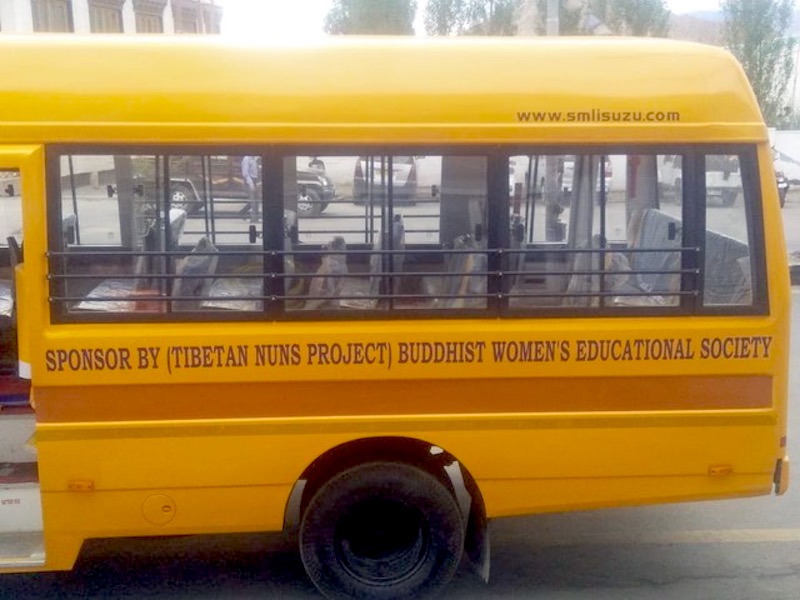






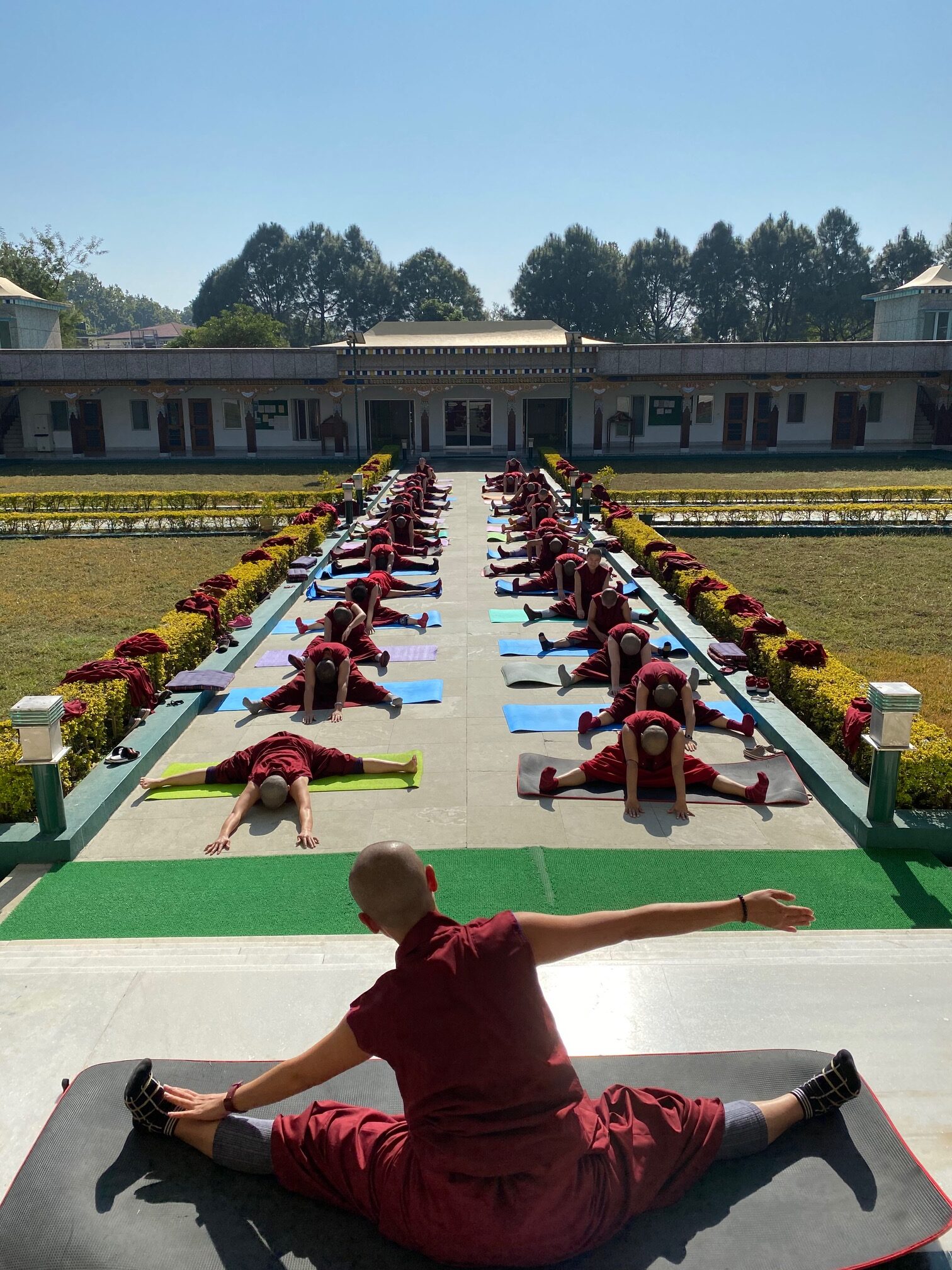





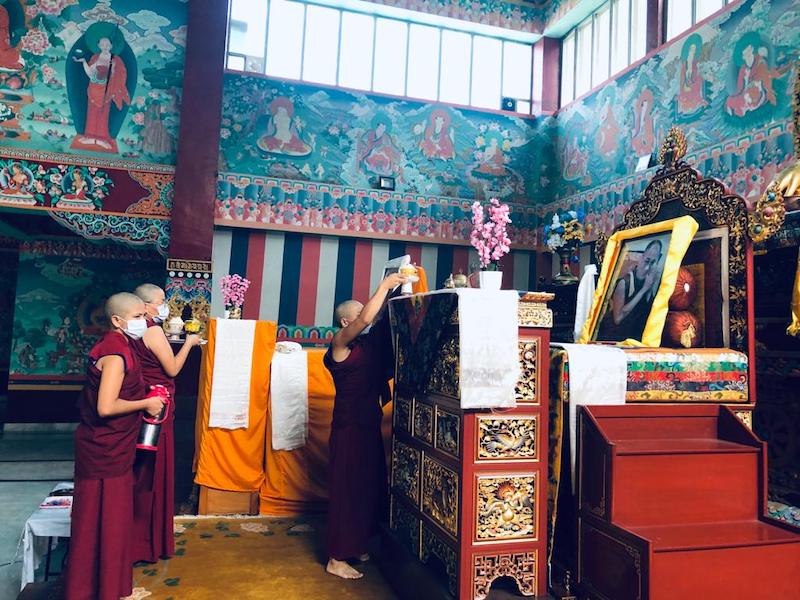
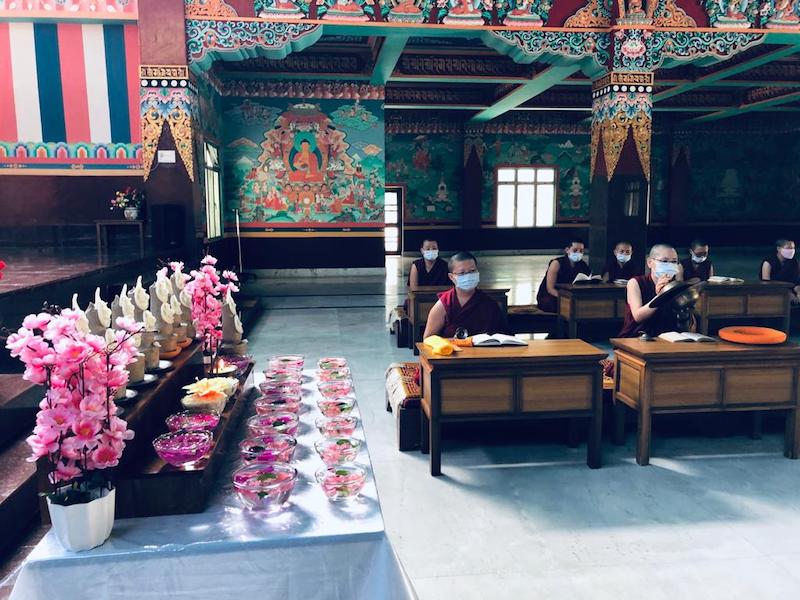
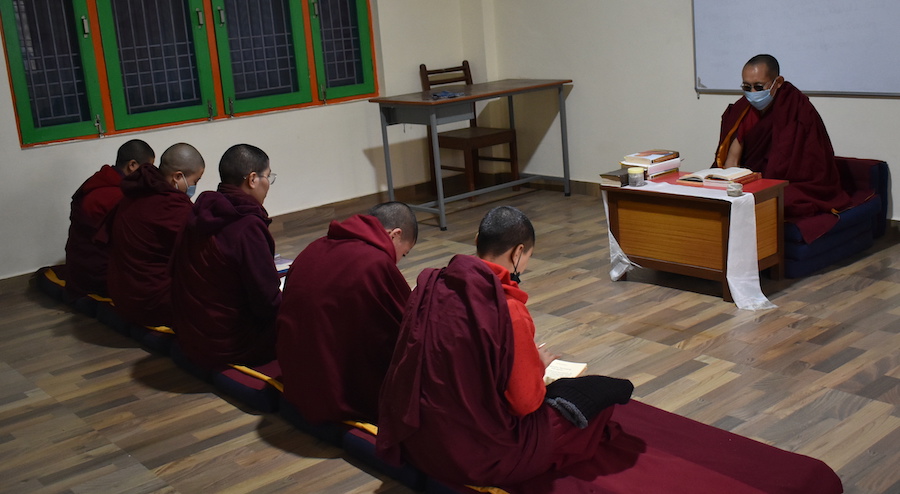
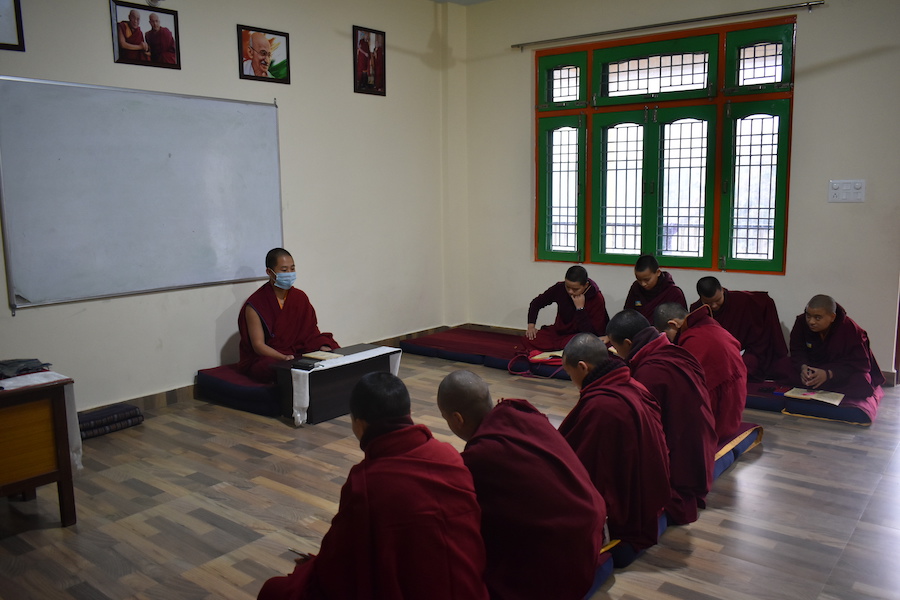








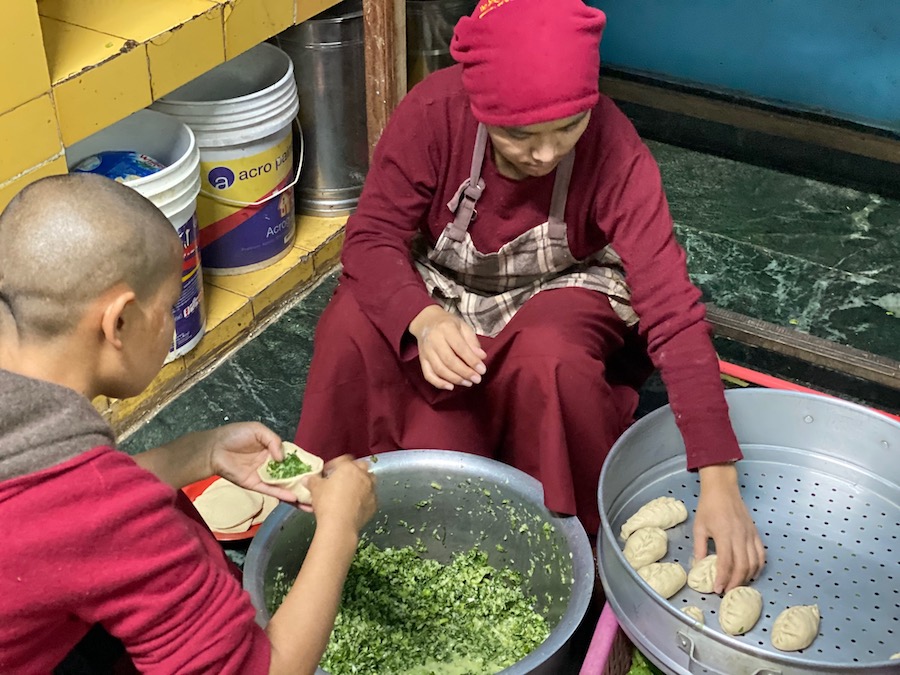
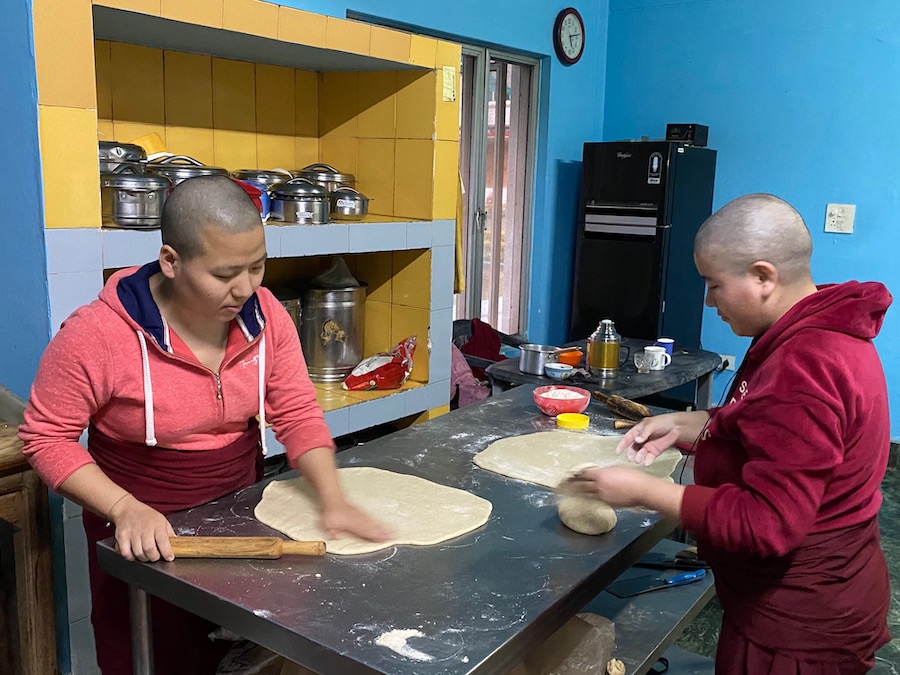






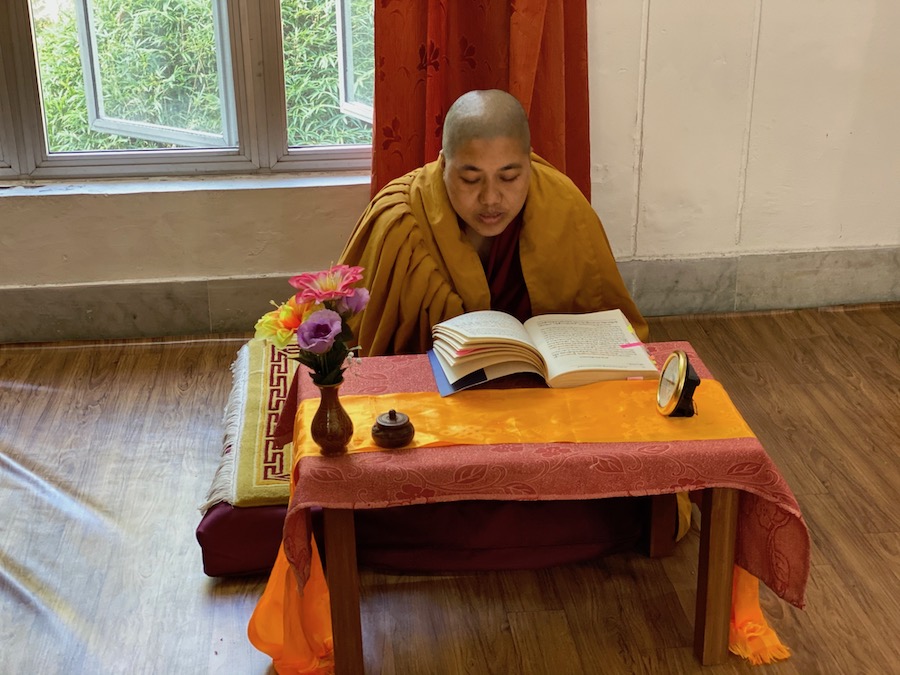

 Even so, as part of measures to provide emotional health care, a Vipassana meditation master and a yoga expert were invited to give workshops. The College invited Associate Professor Ramesh Chandra Negi from the Central University of Tibetan Studies and an expert in
Even so, as part of measures to provide emotional health care, a Vipassana meditation master and a yoga expert were invited to give workshops. The College invited Associate Professor Ramesh Chandra Negi from the Central University of Tibetan Studies and an expert in 




















 In August 2015, we travelled for three days over rough, bumpy roads from Leh in Ladakh to Zanskar, a remote area in northern India. Located in this majestic, arid landscape is Dorjee Zong Nunnery, home to 19 nuns.
In August 2015, we travelled for three days over rough, bumpy roads from Leh in Ladakh to Zanskar, a remote area in northern India. Located in this majestic, arid landscape is Dorjee Zong Nunnery, home to 19 nuns.
